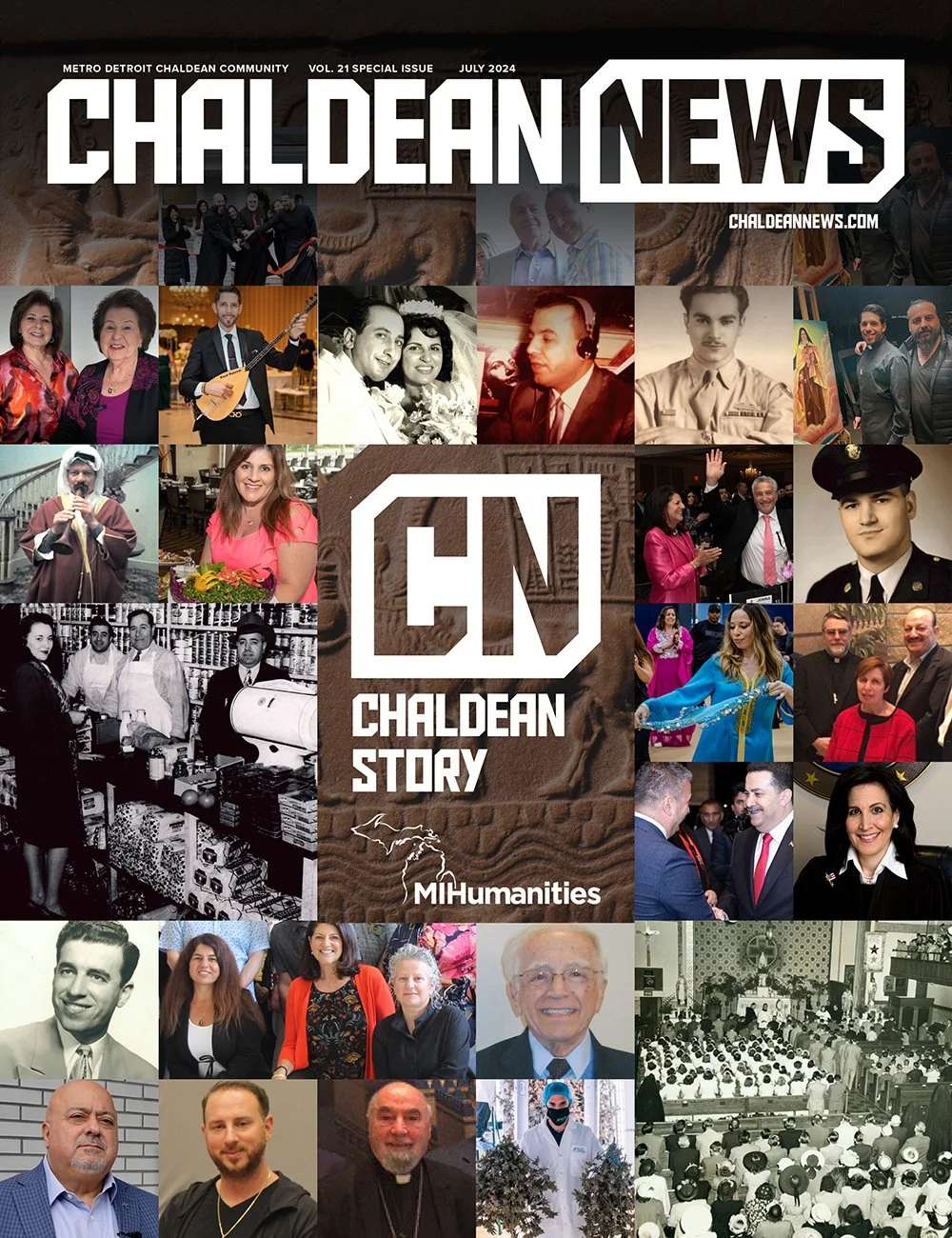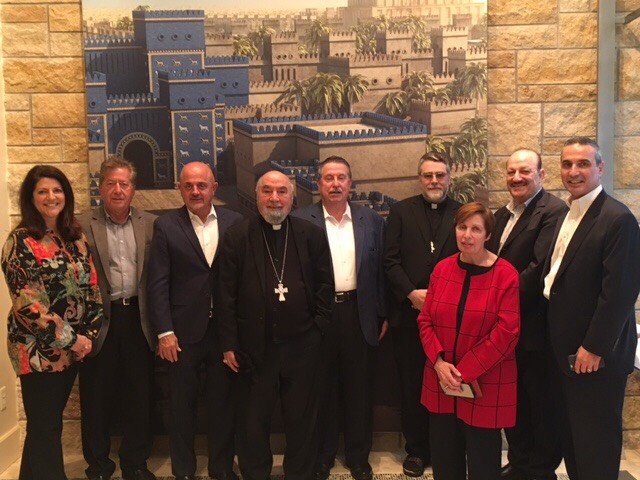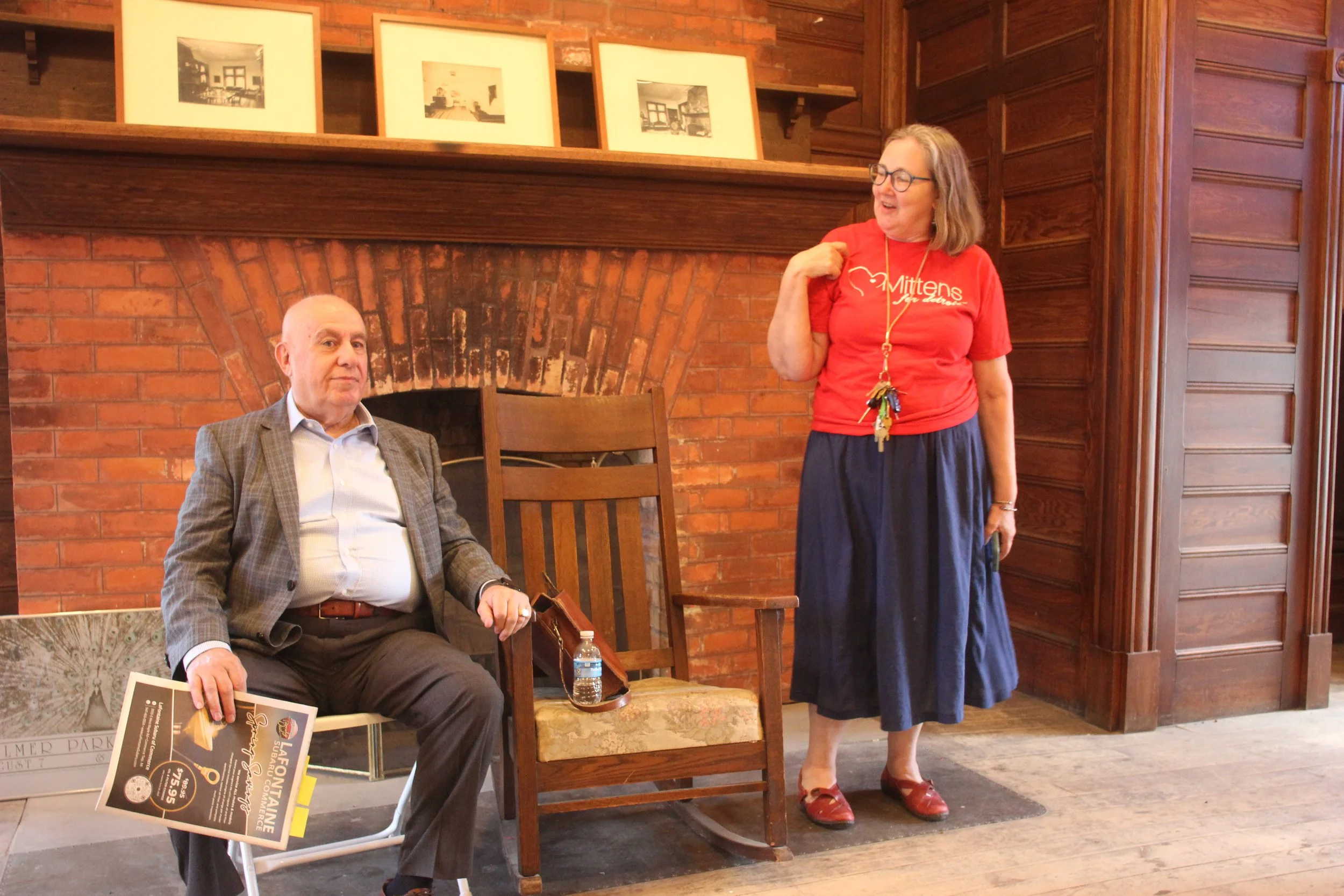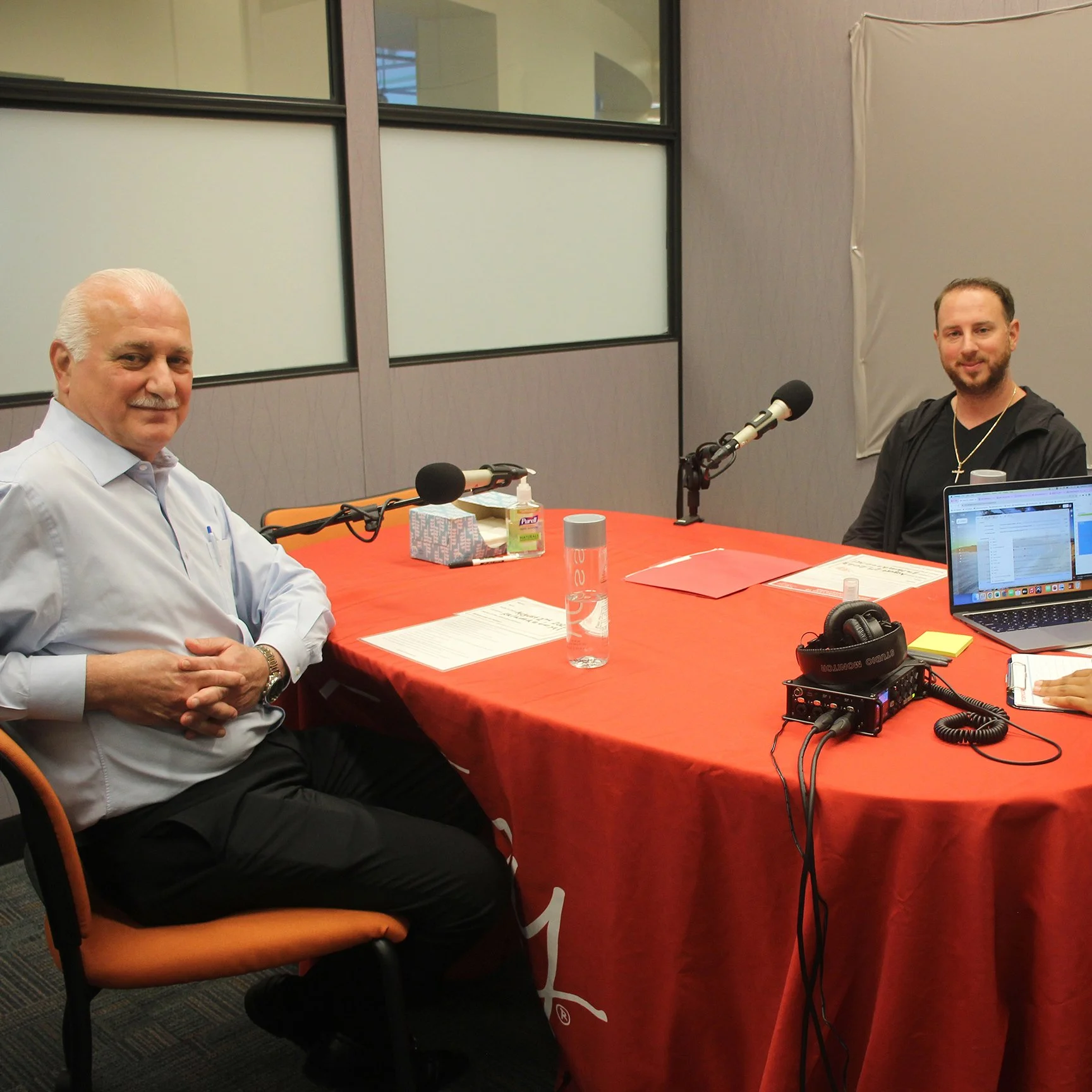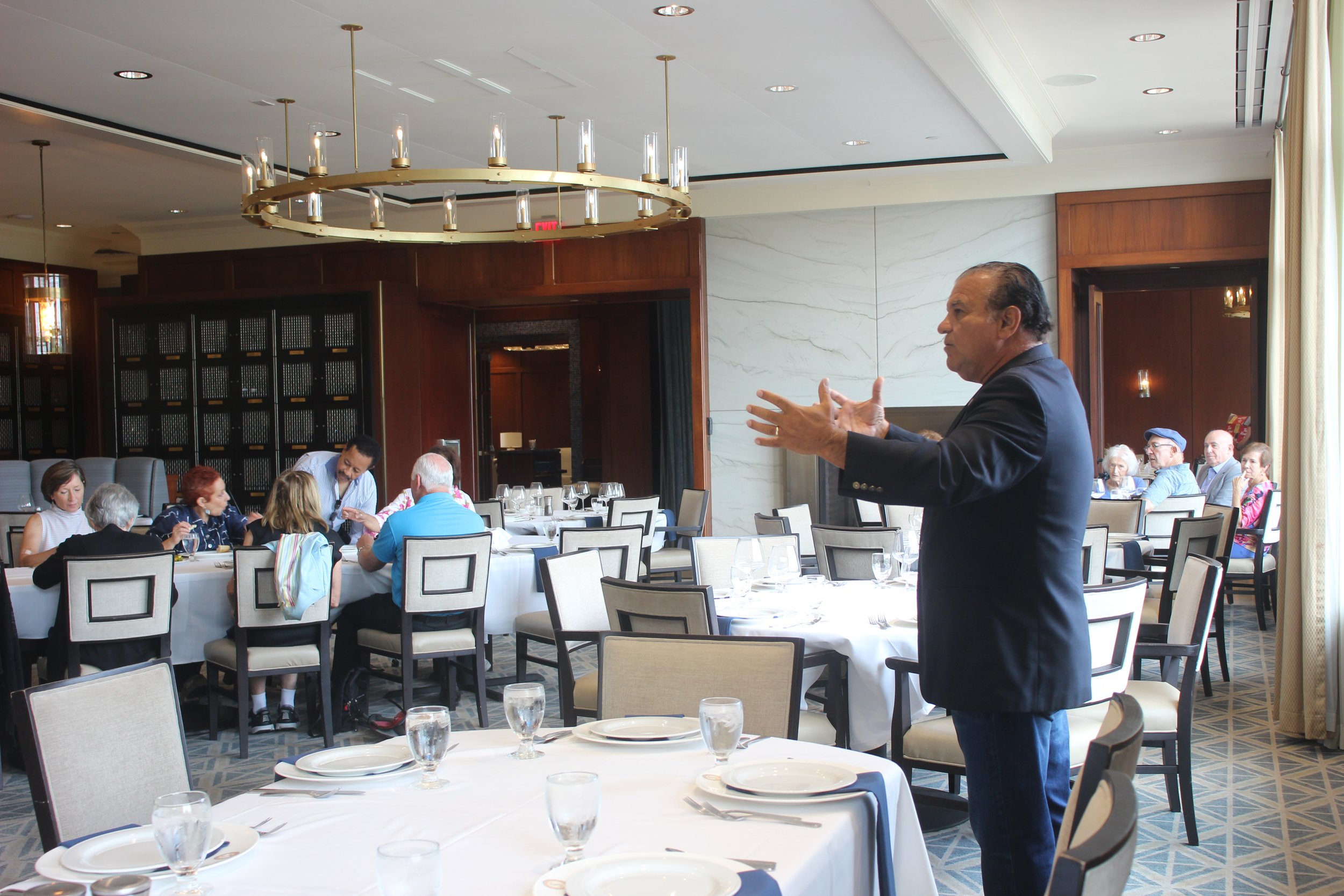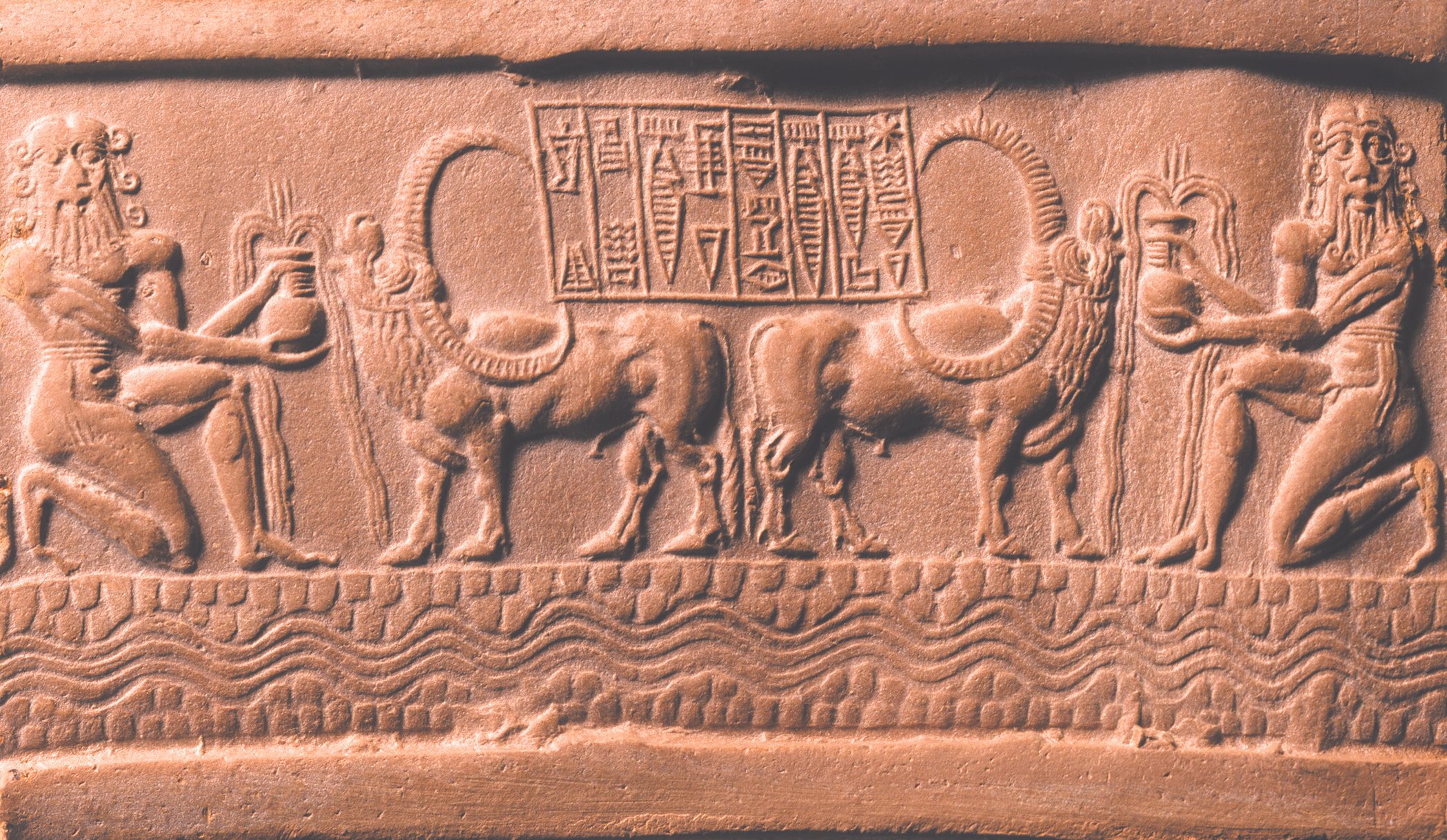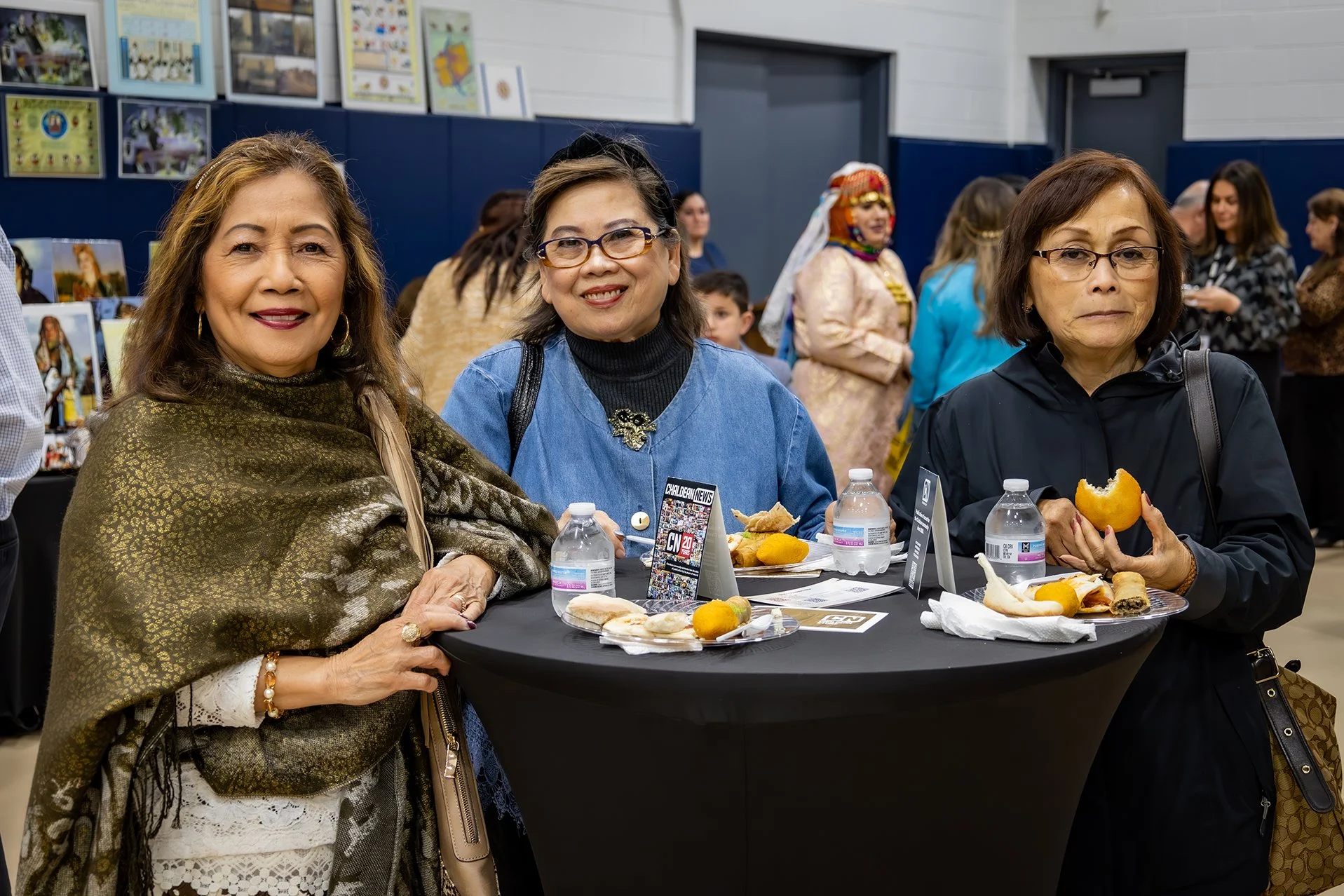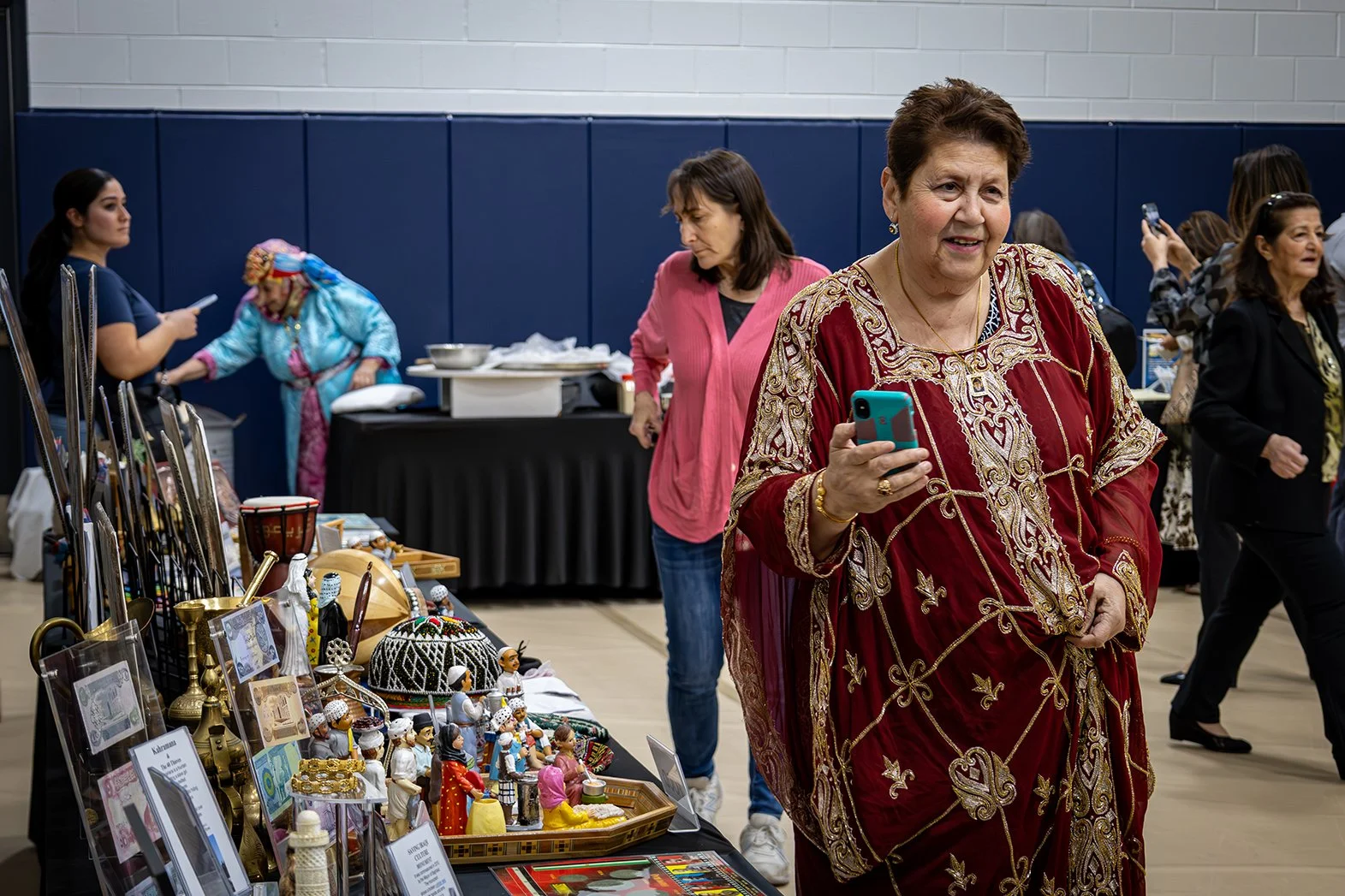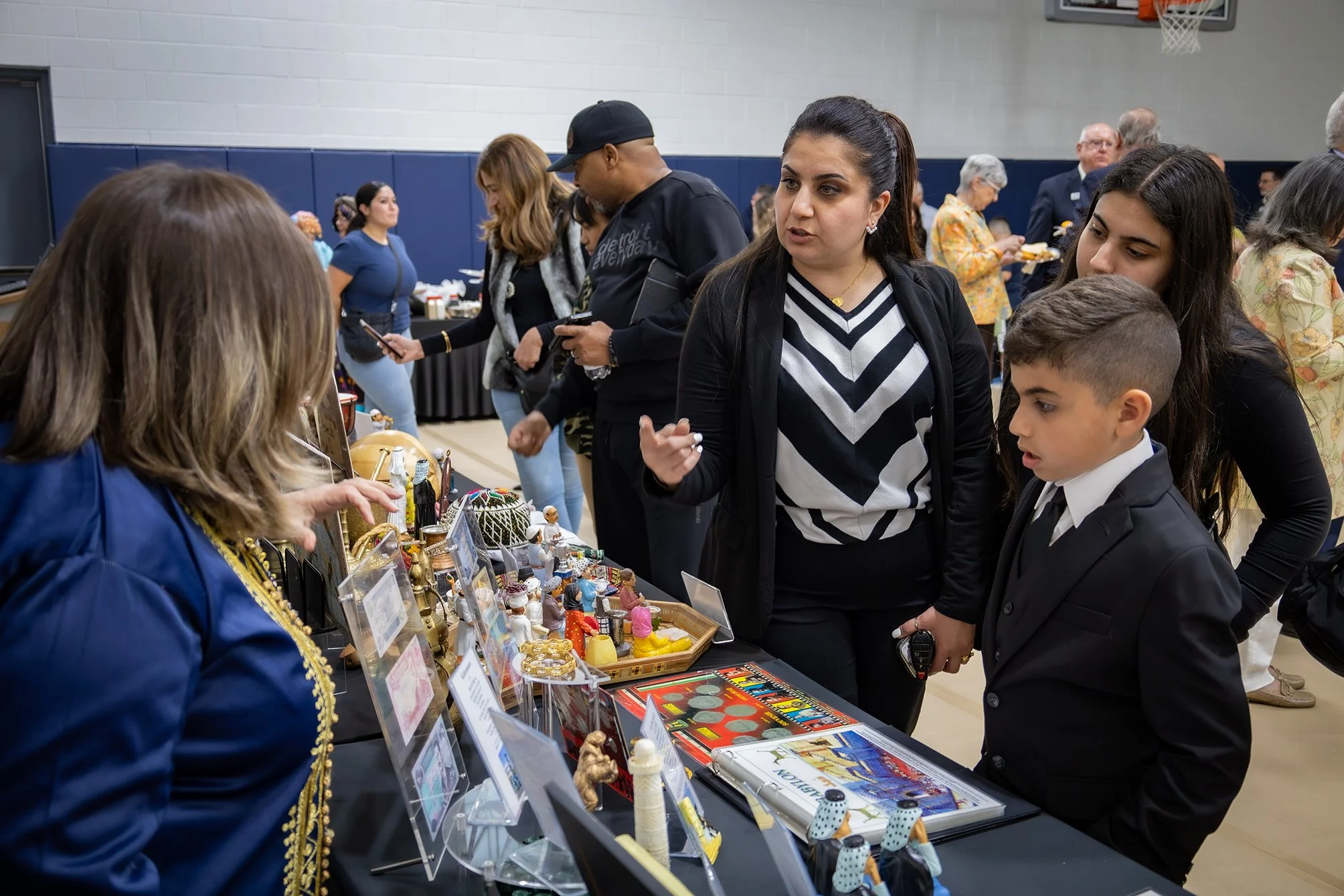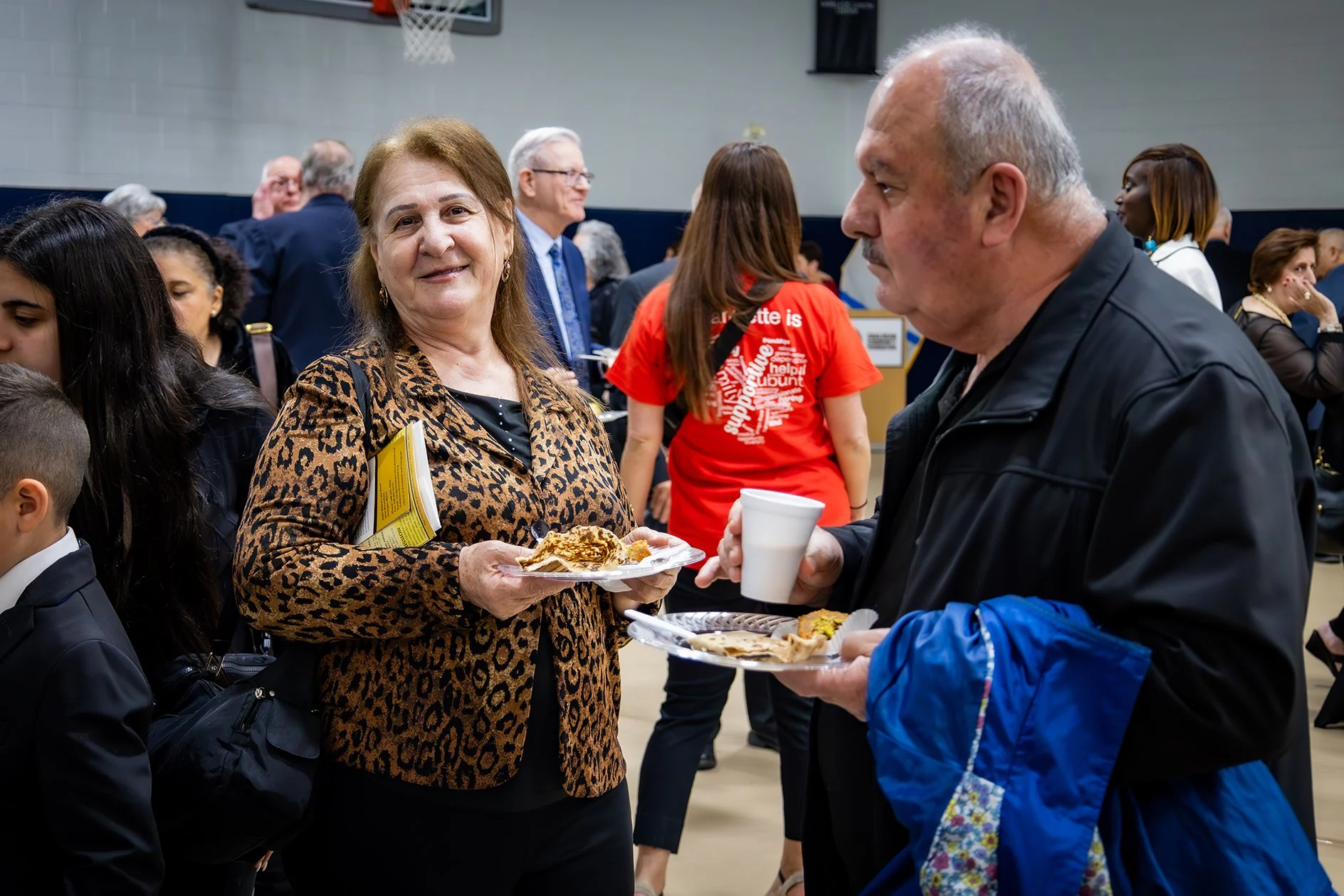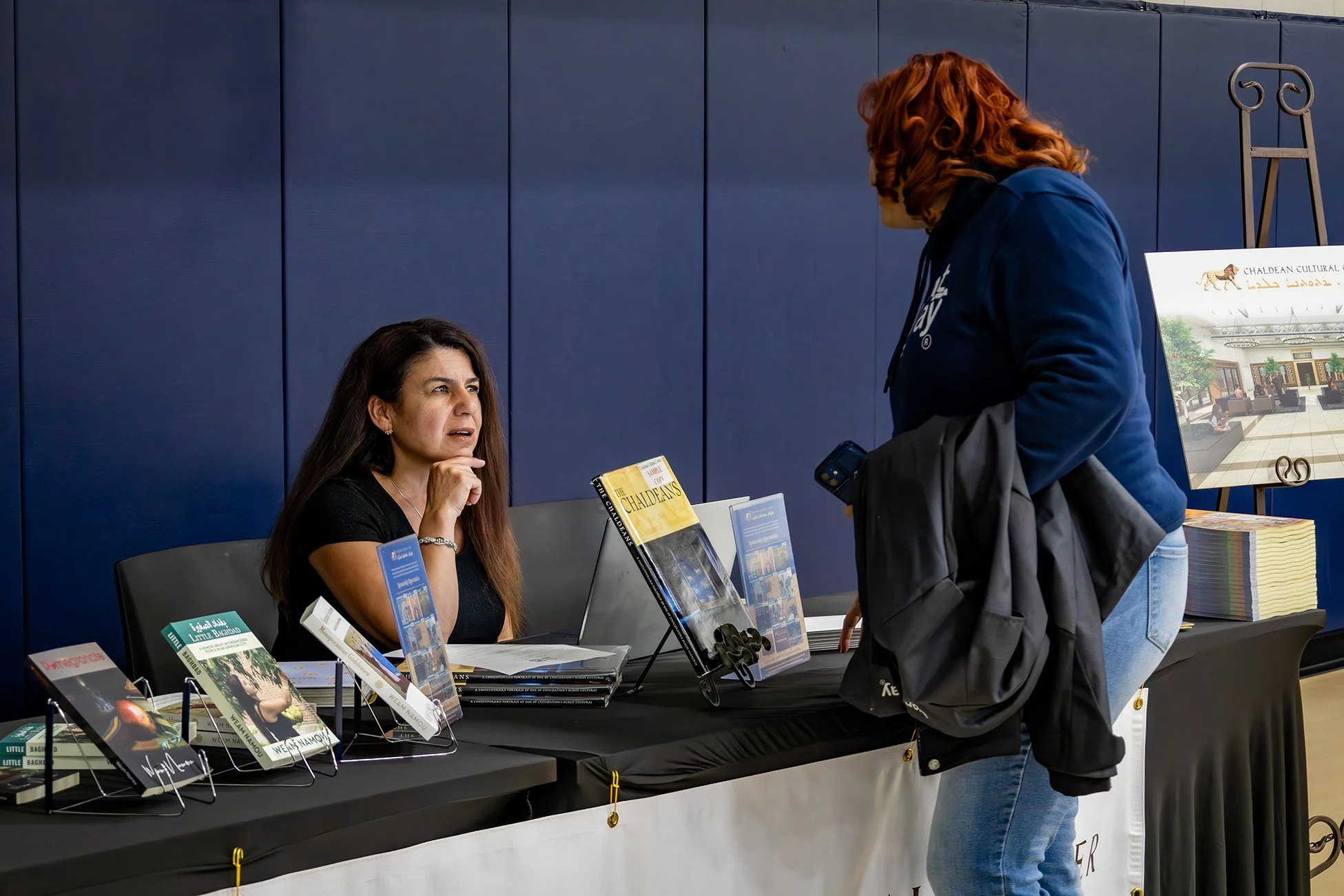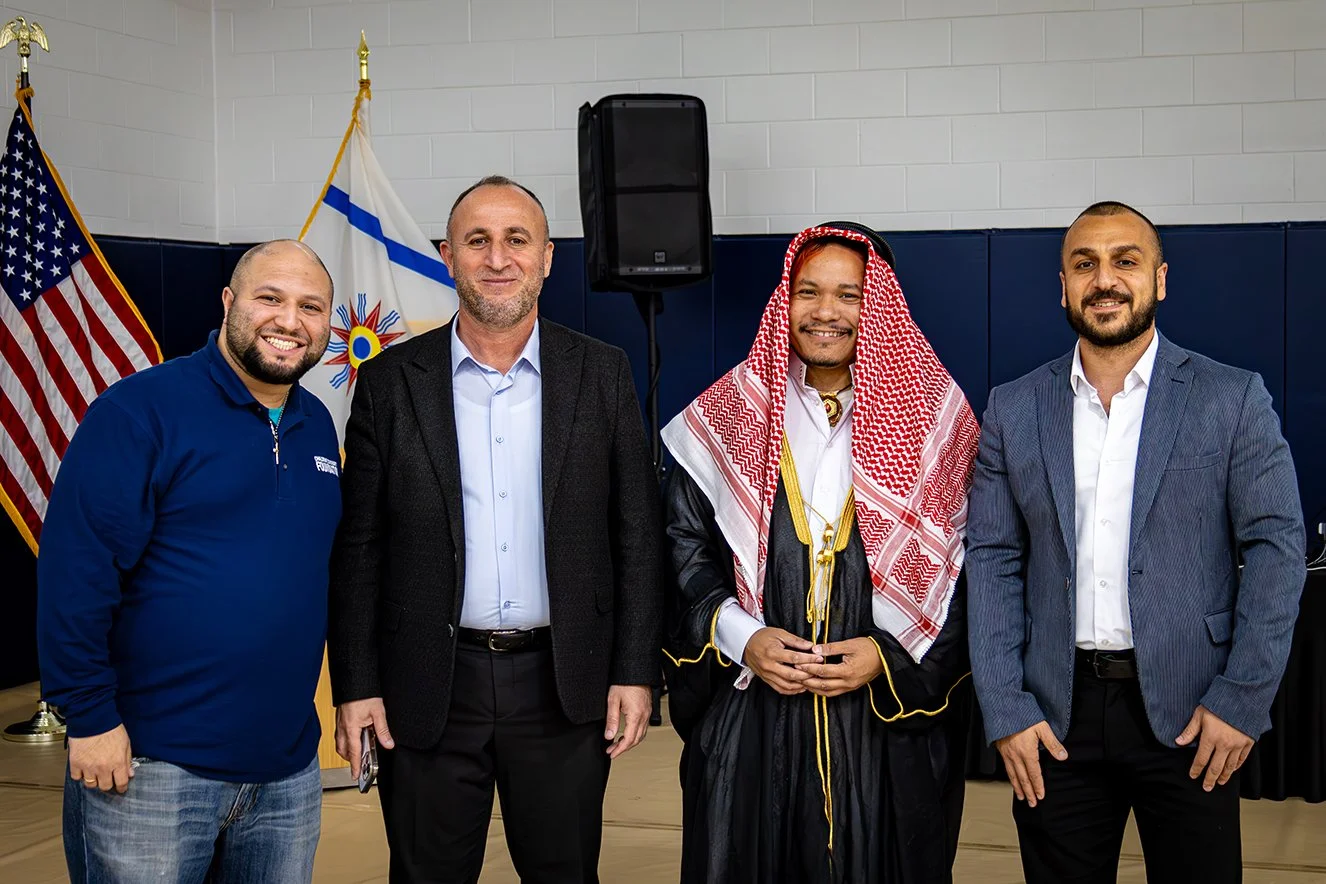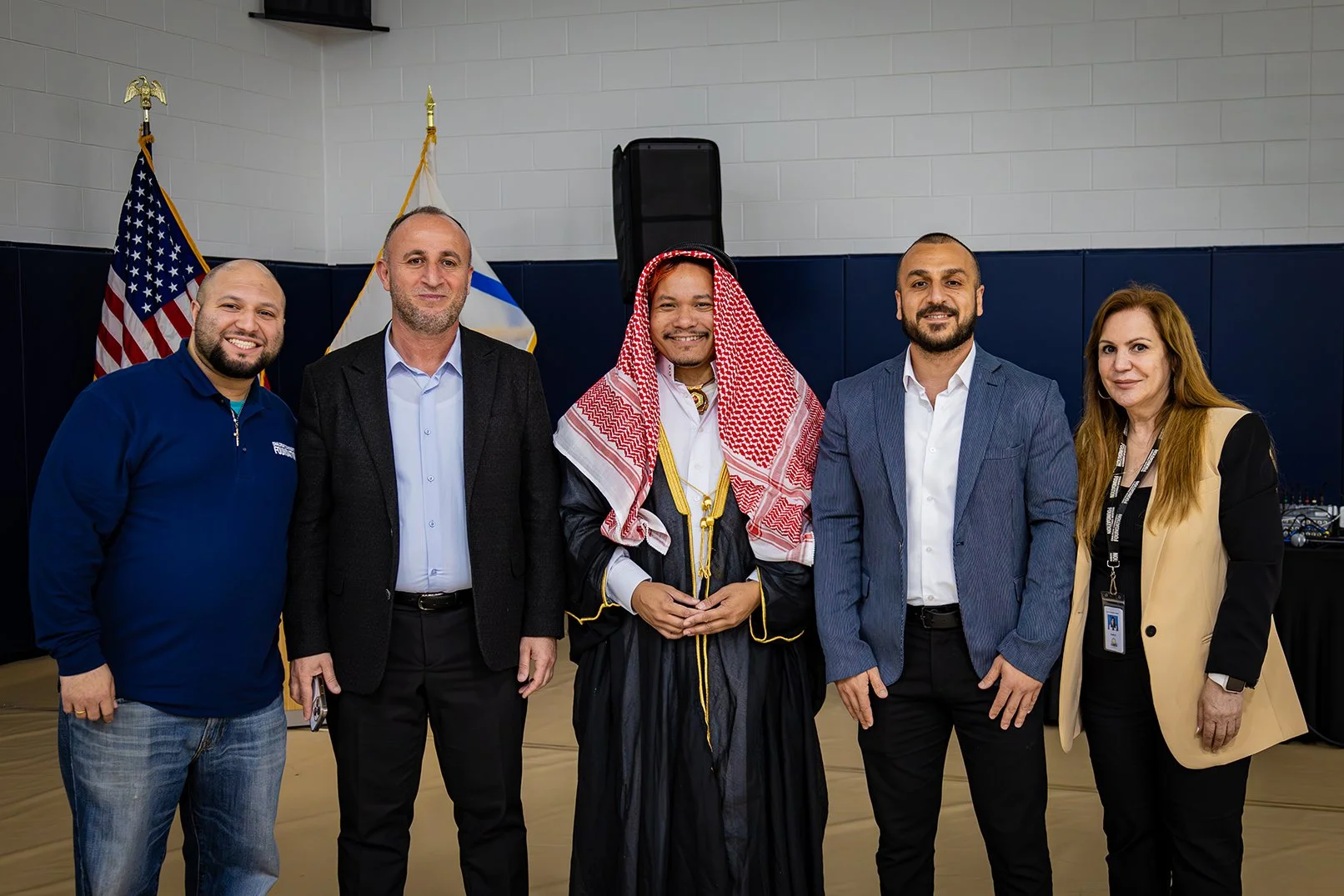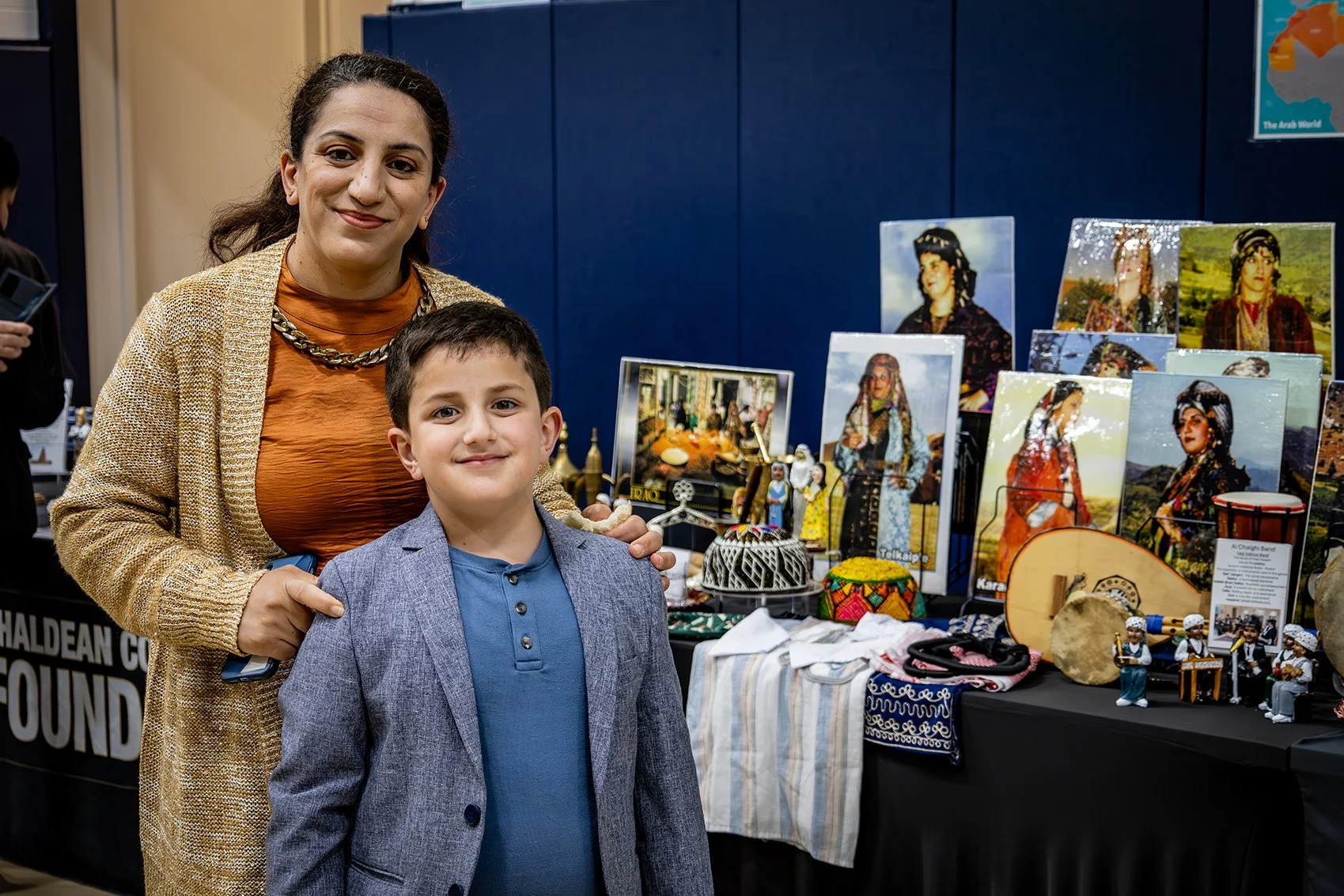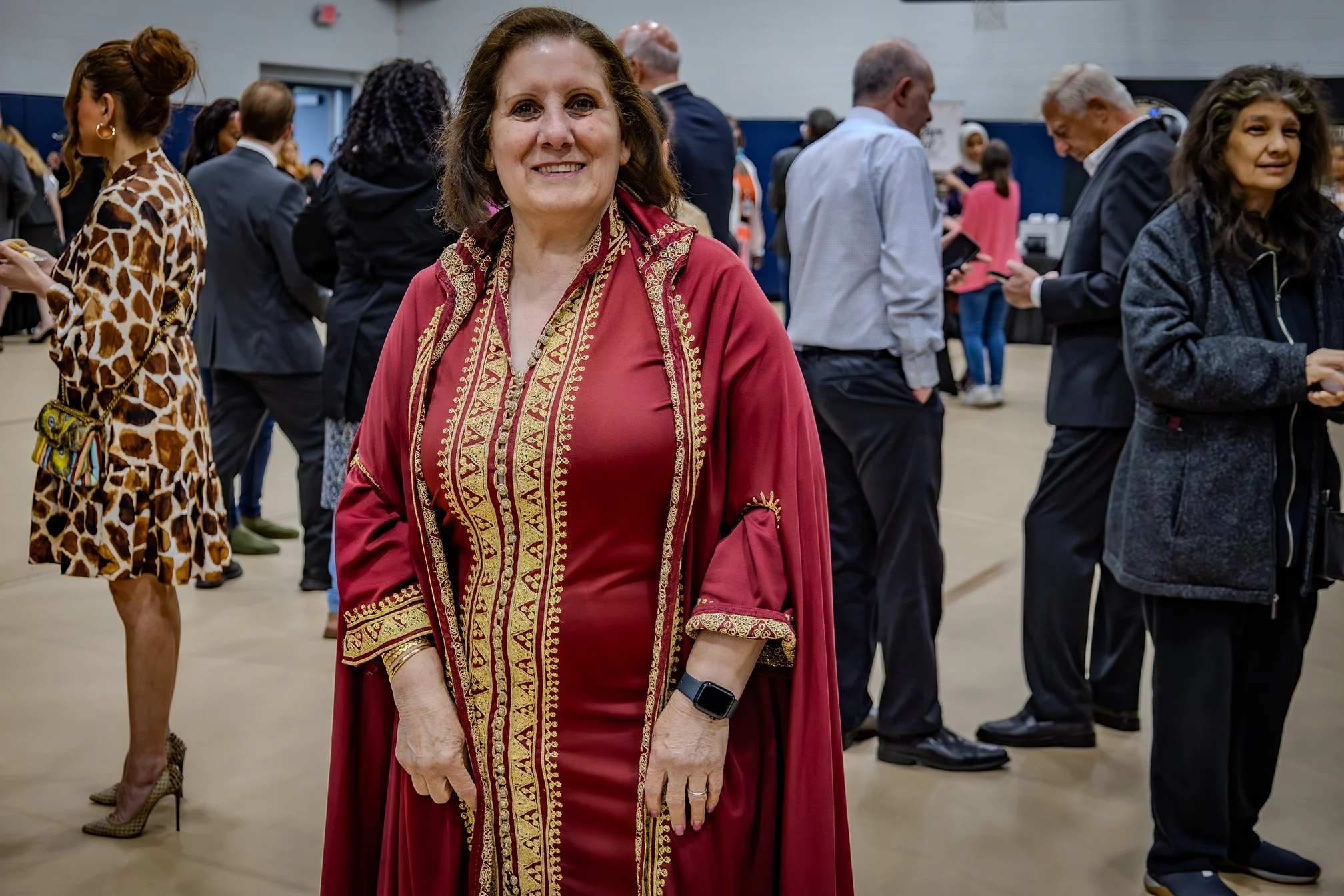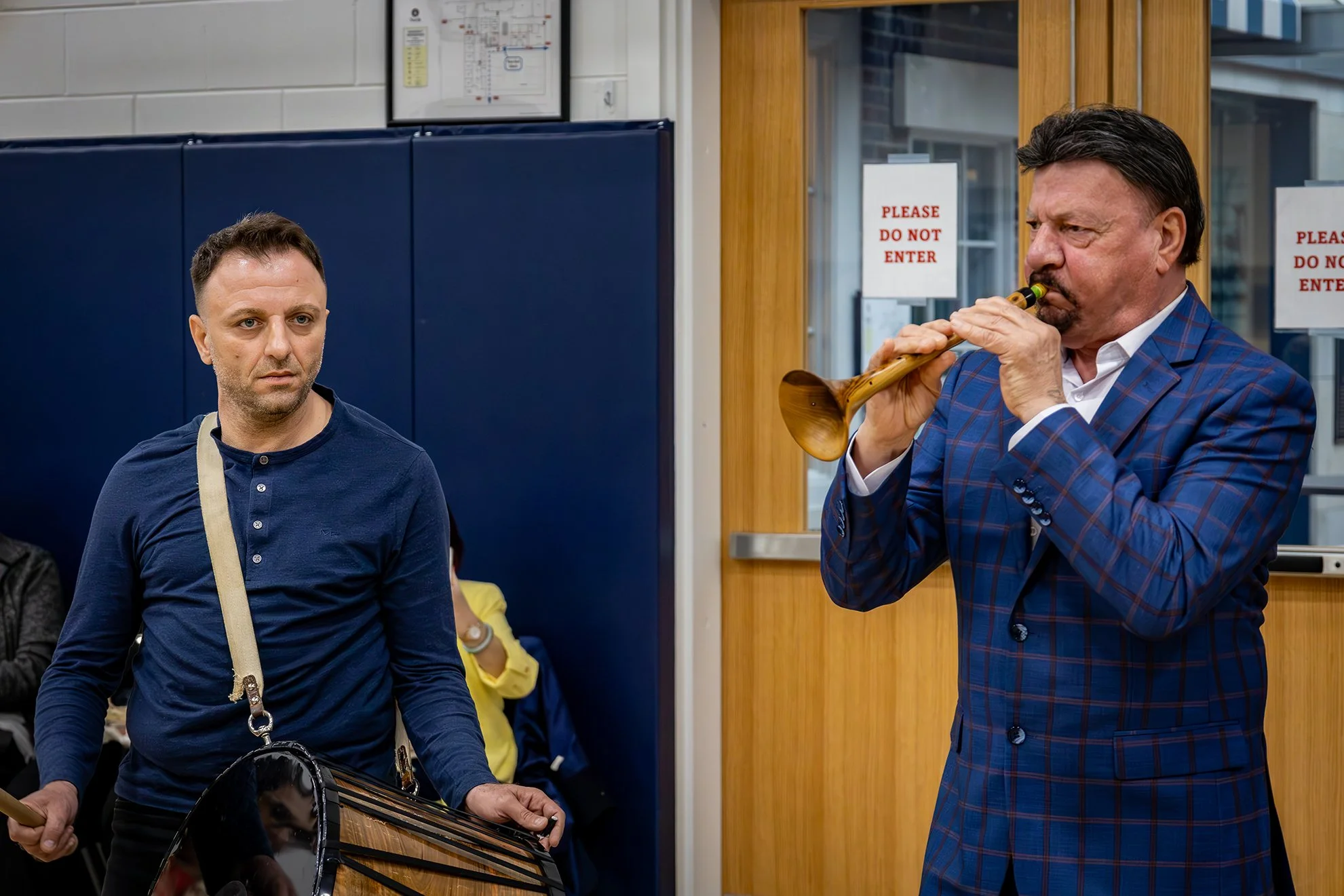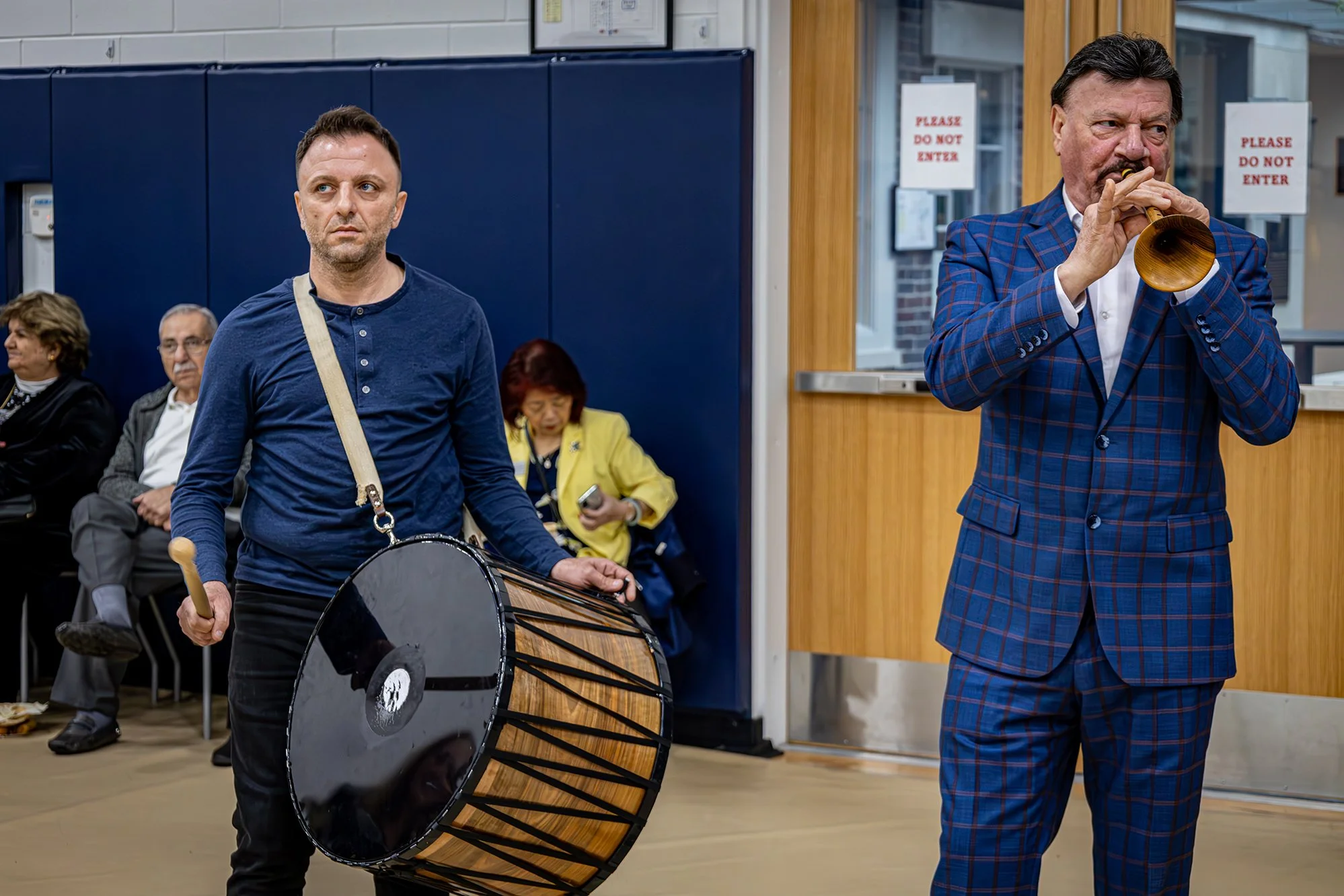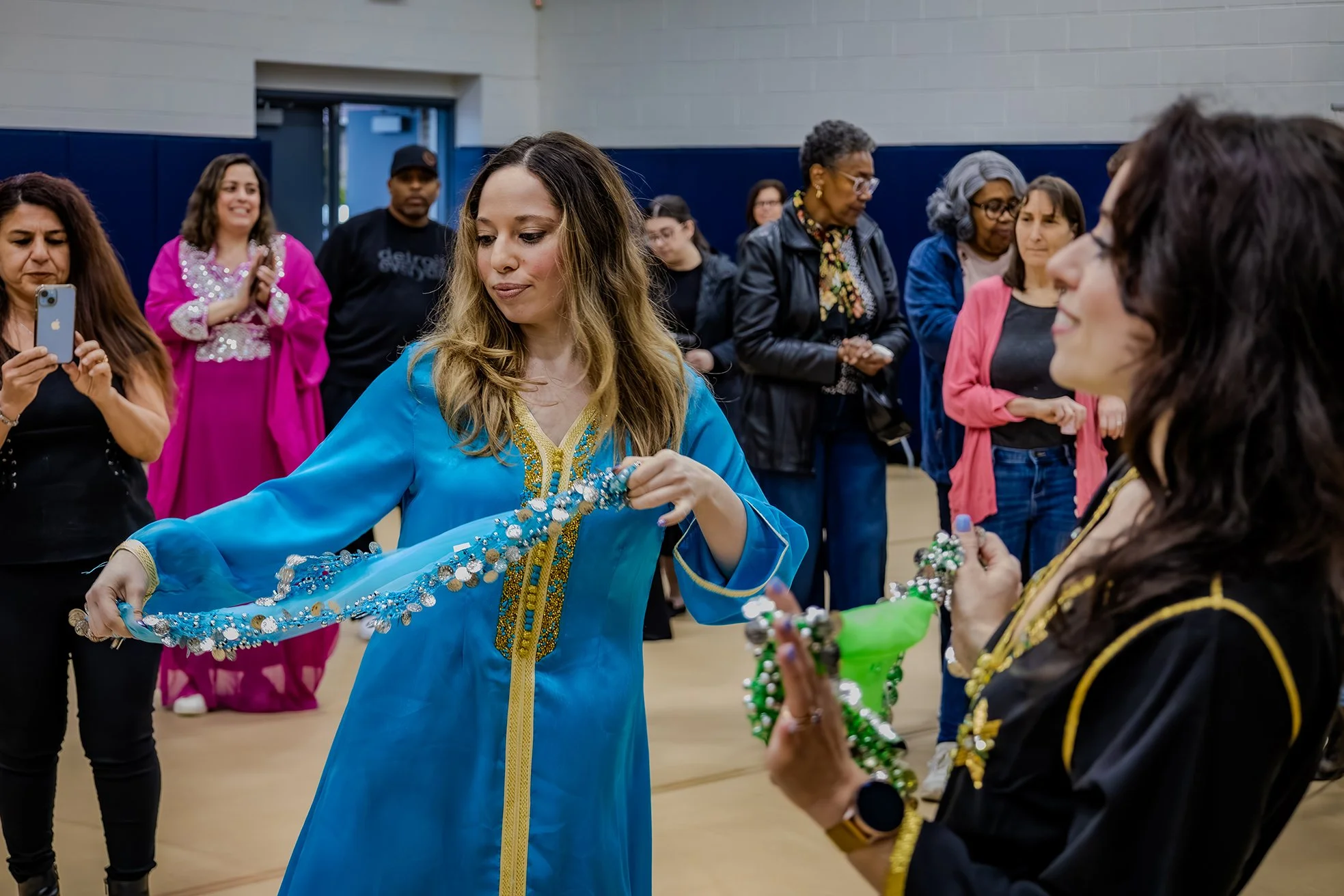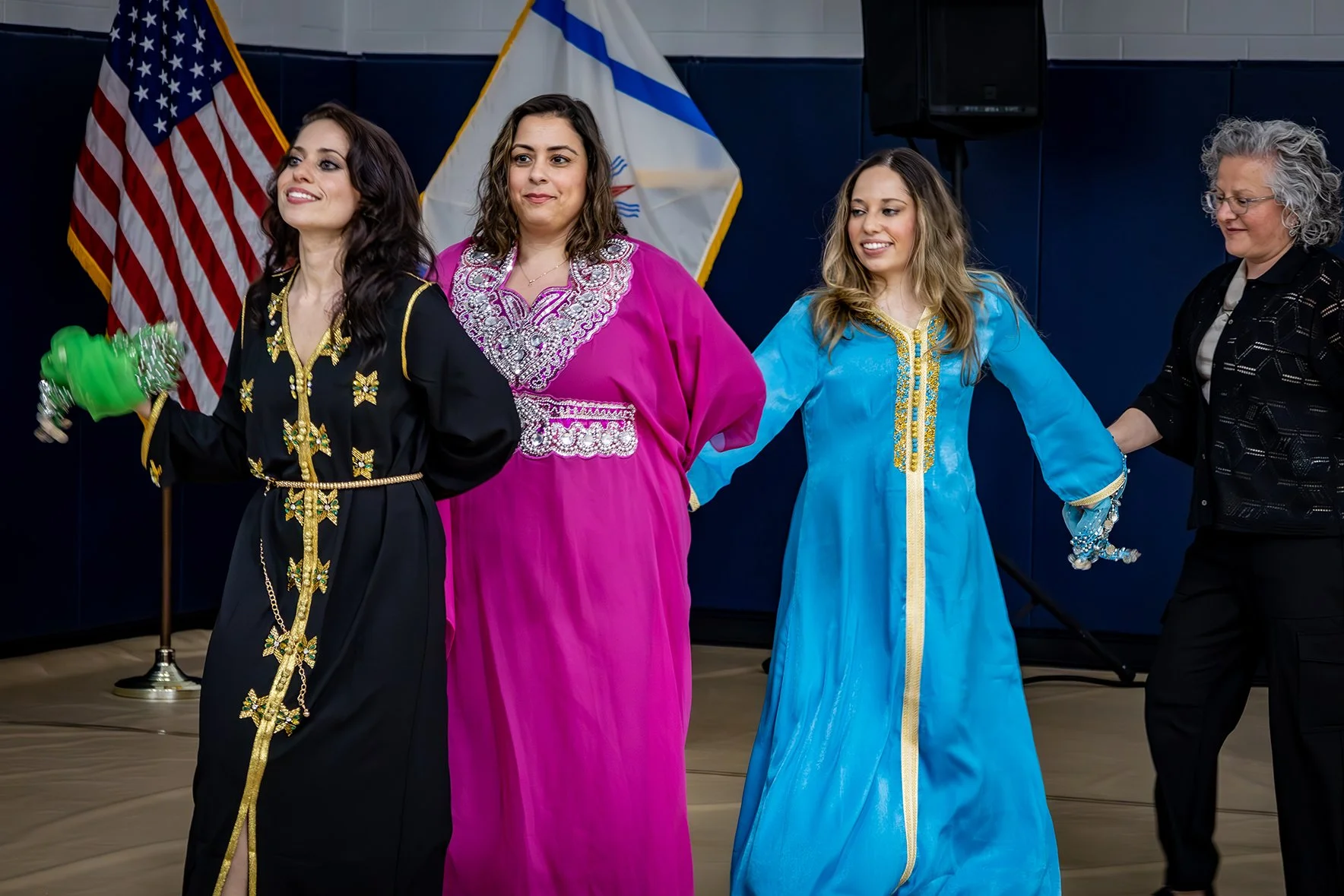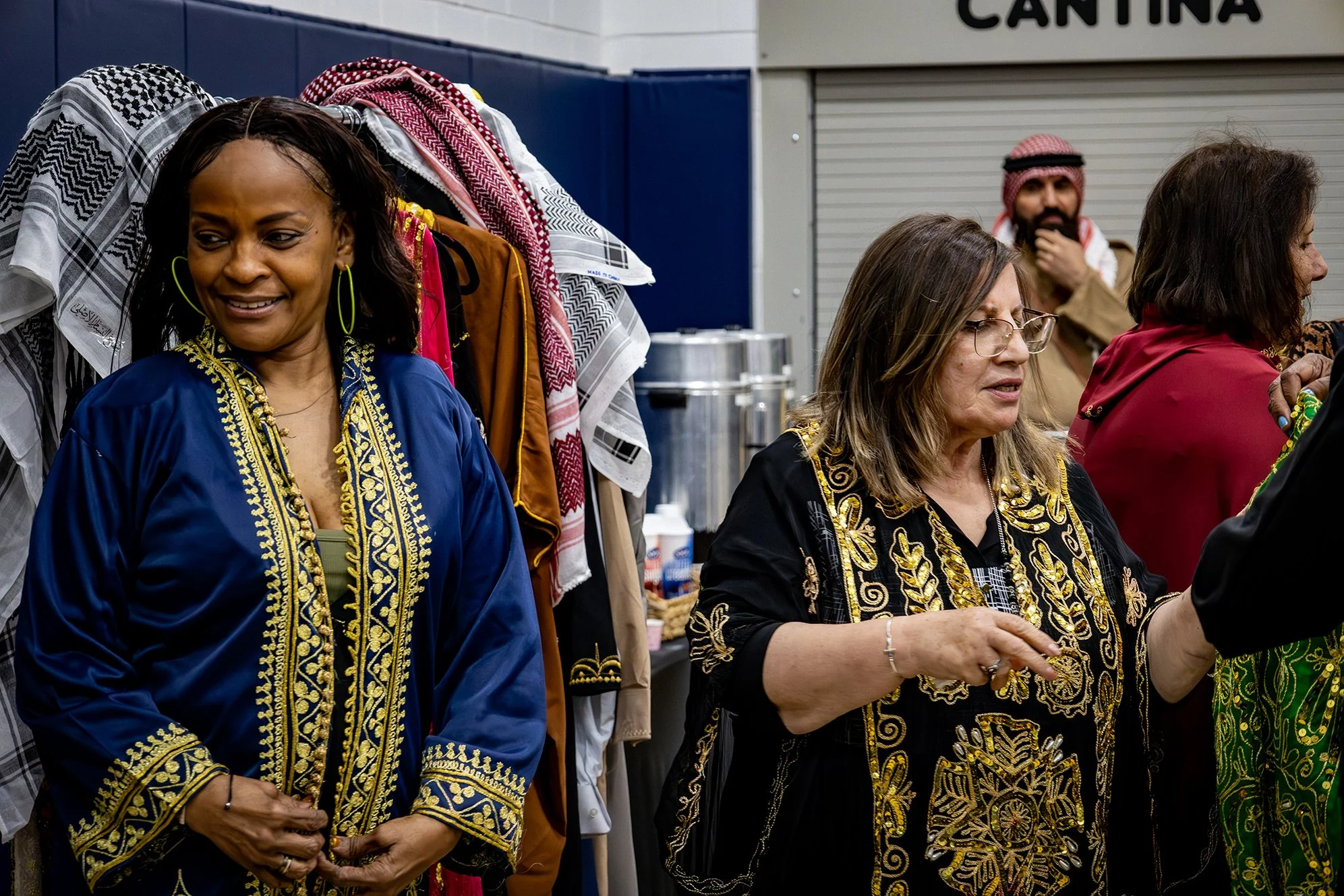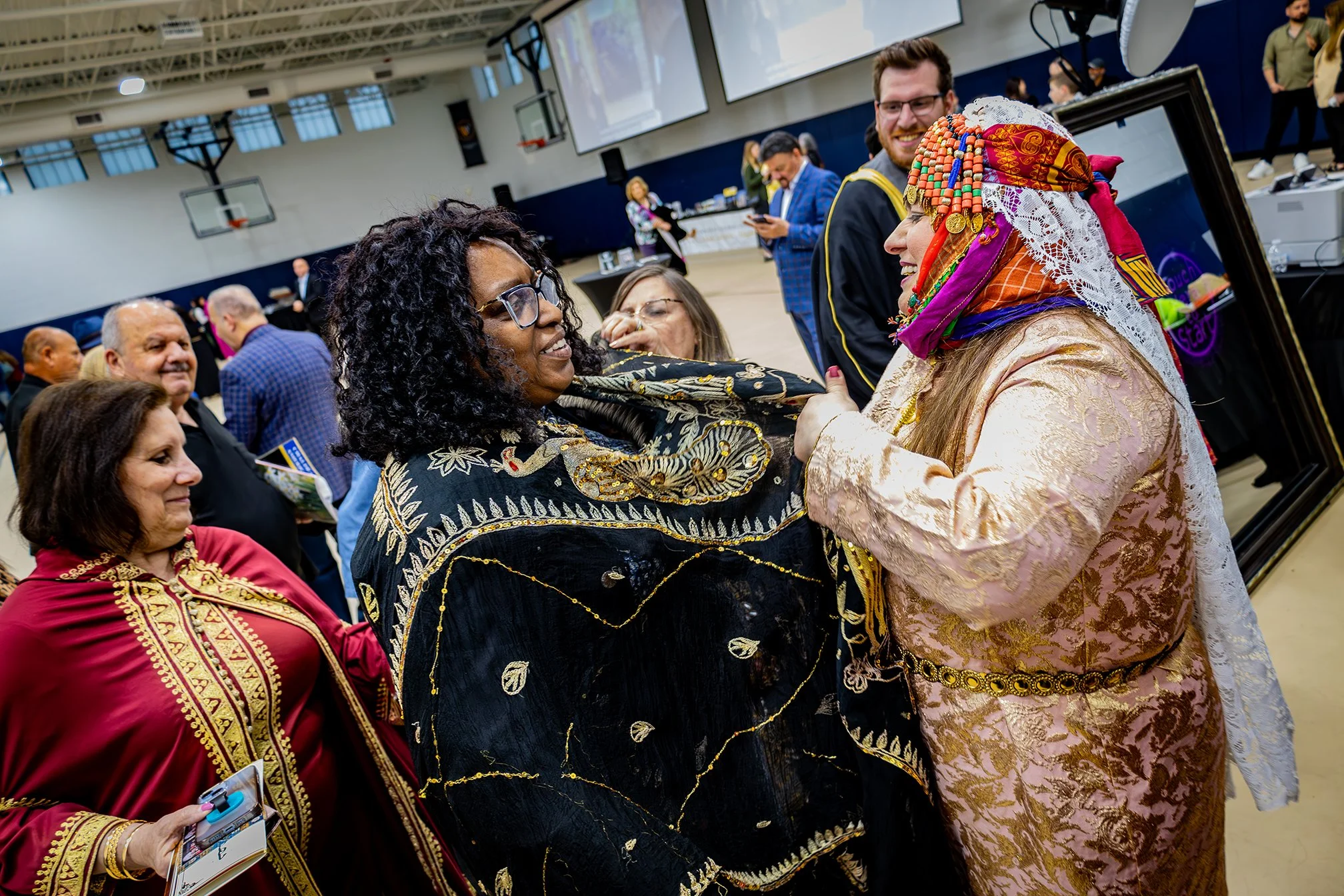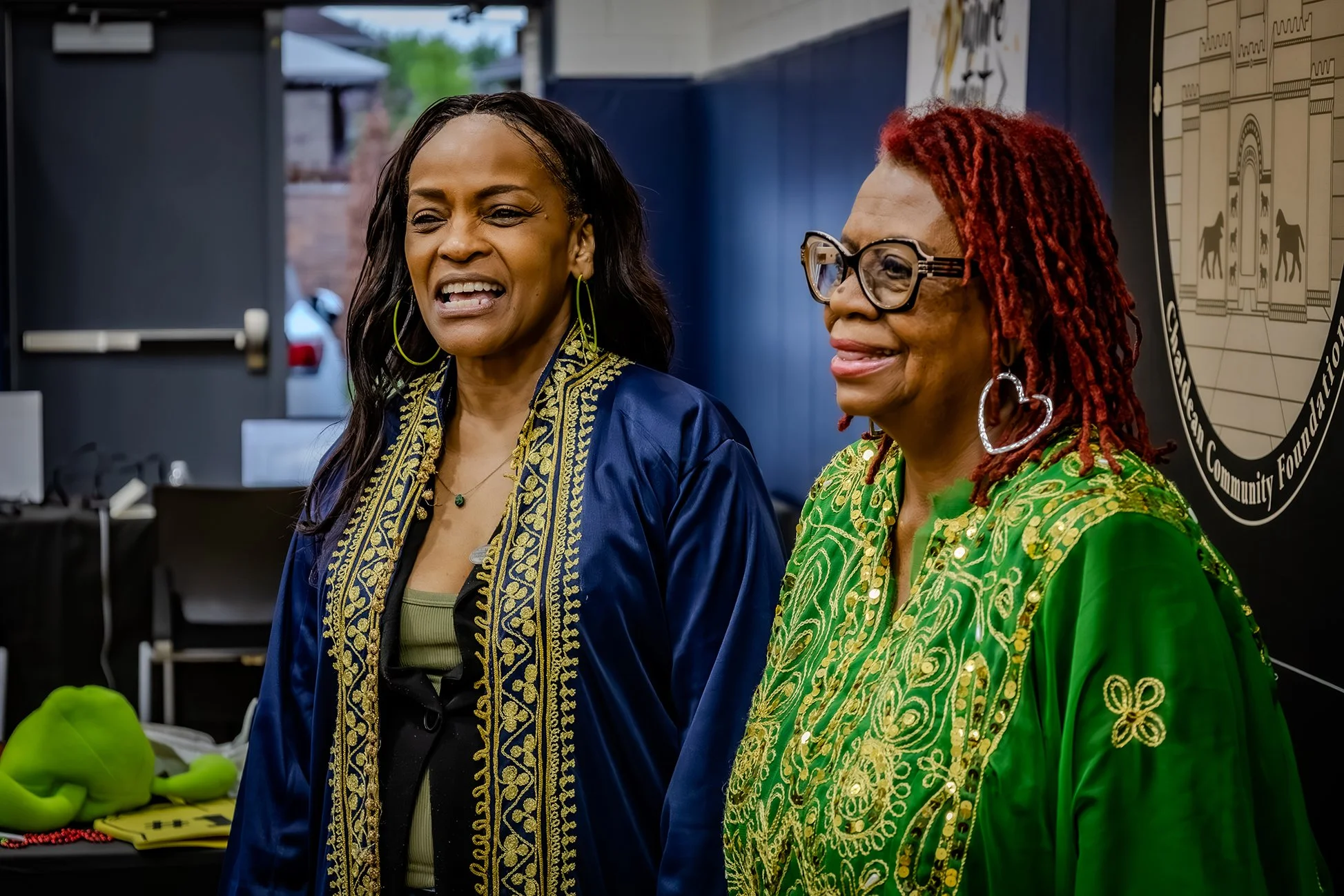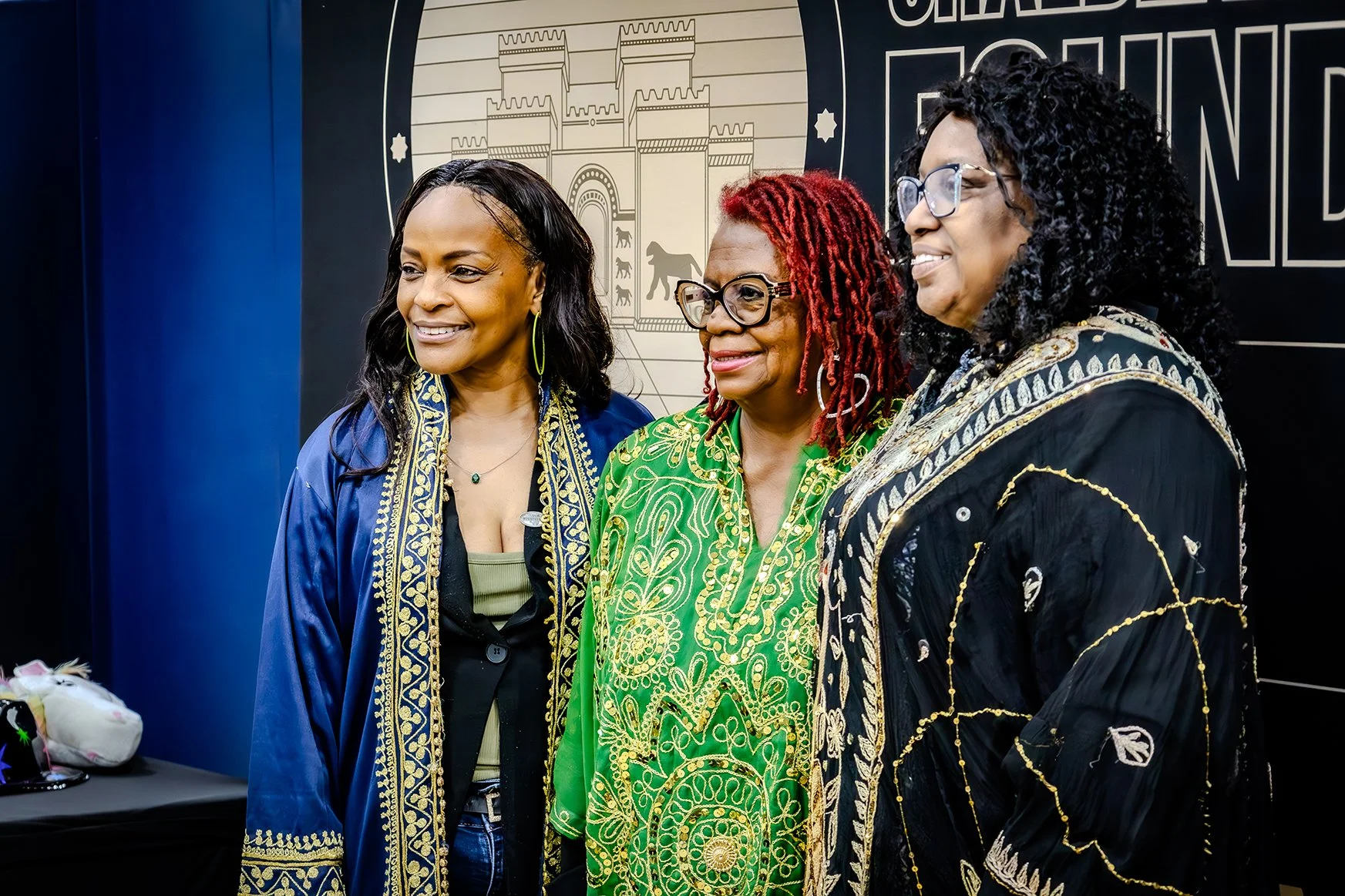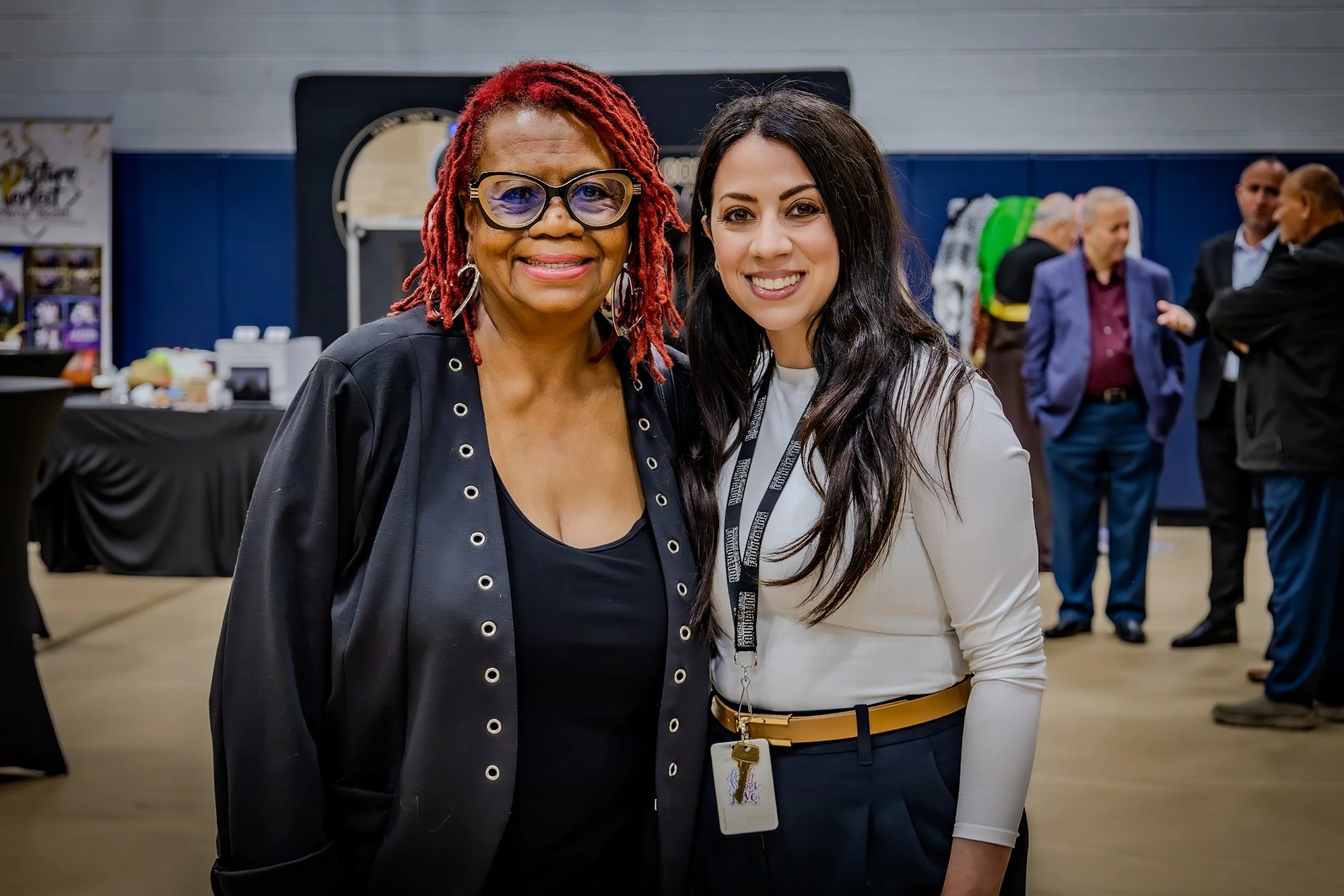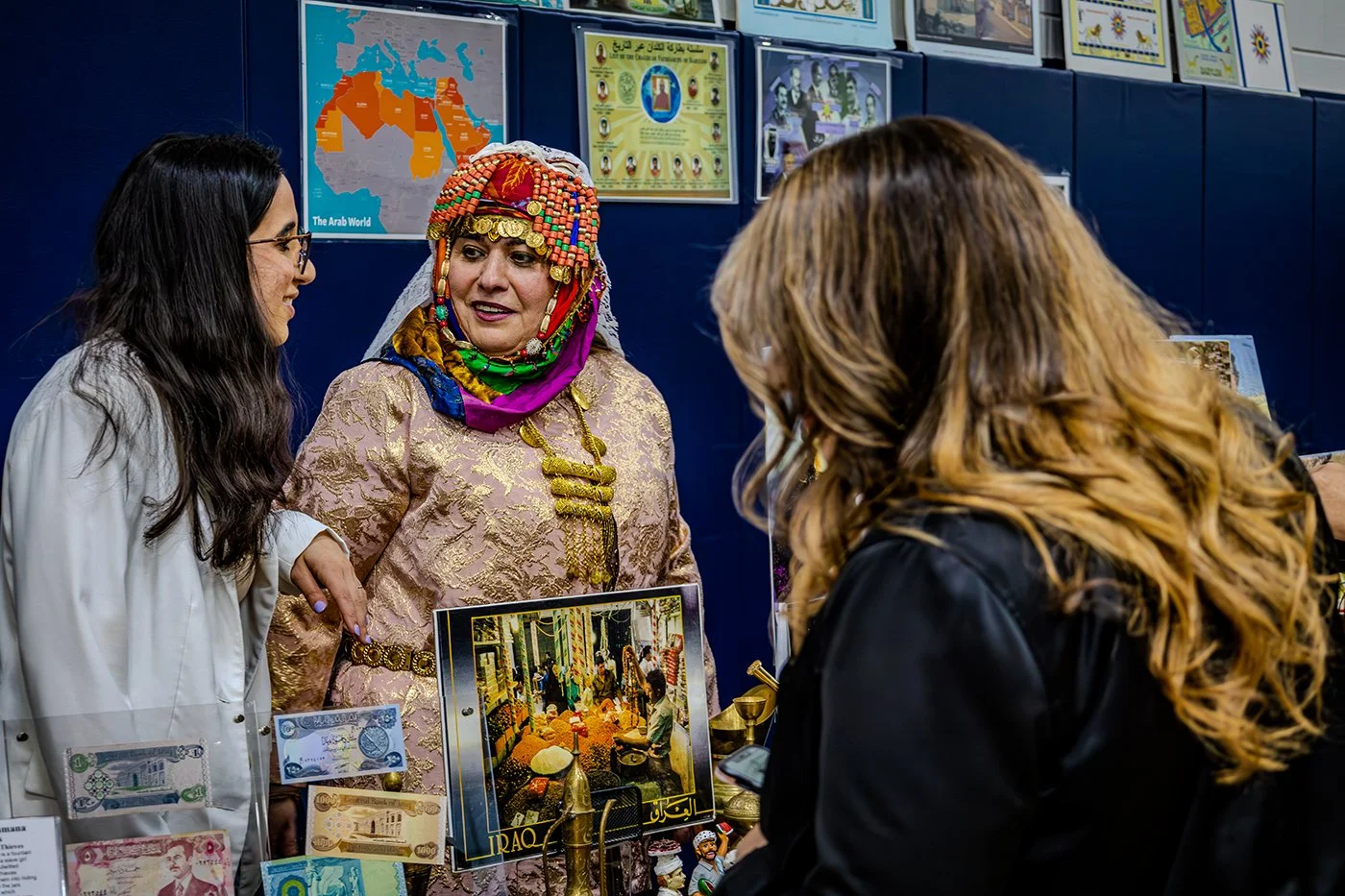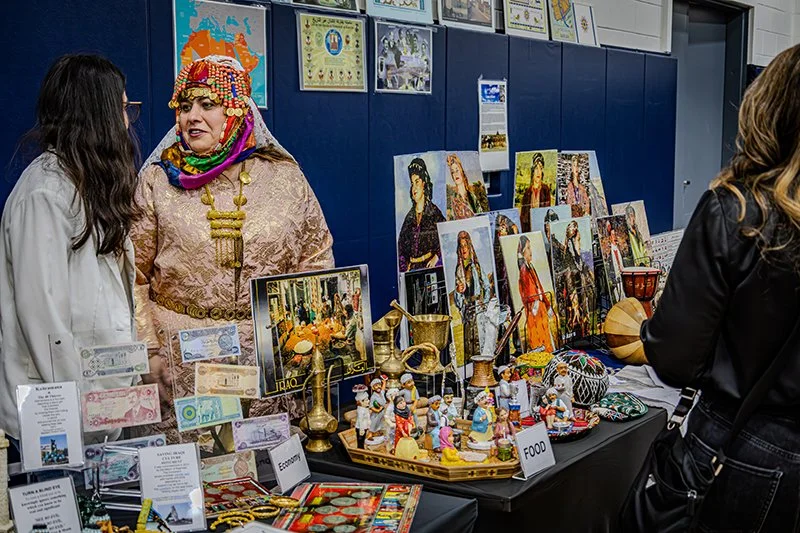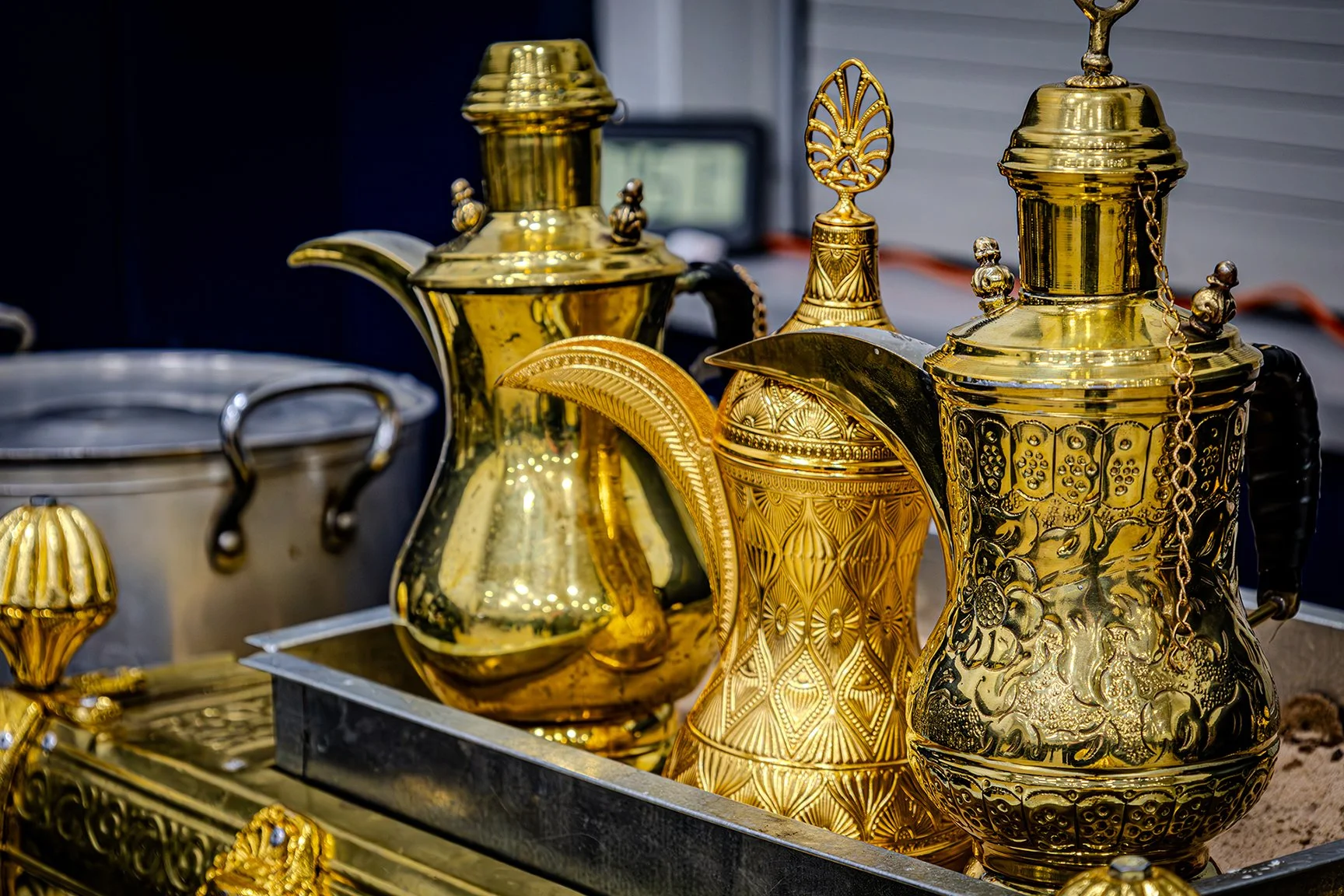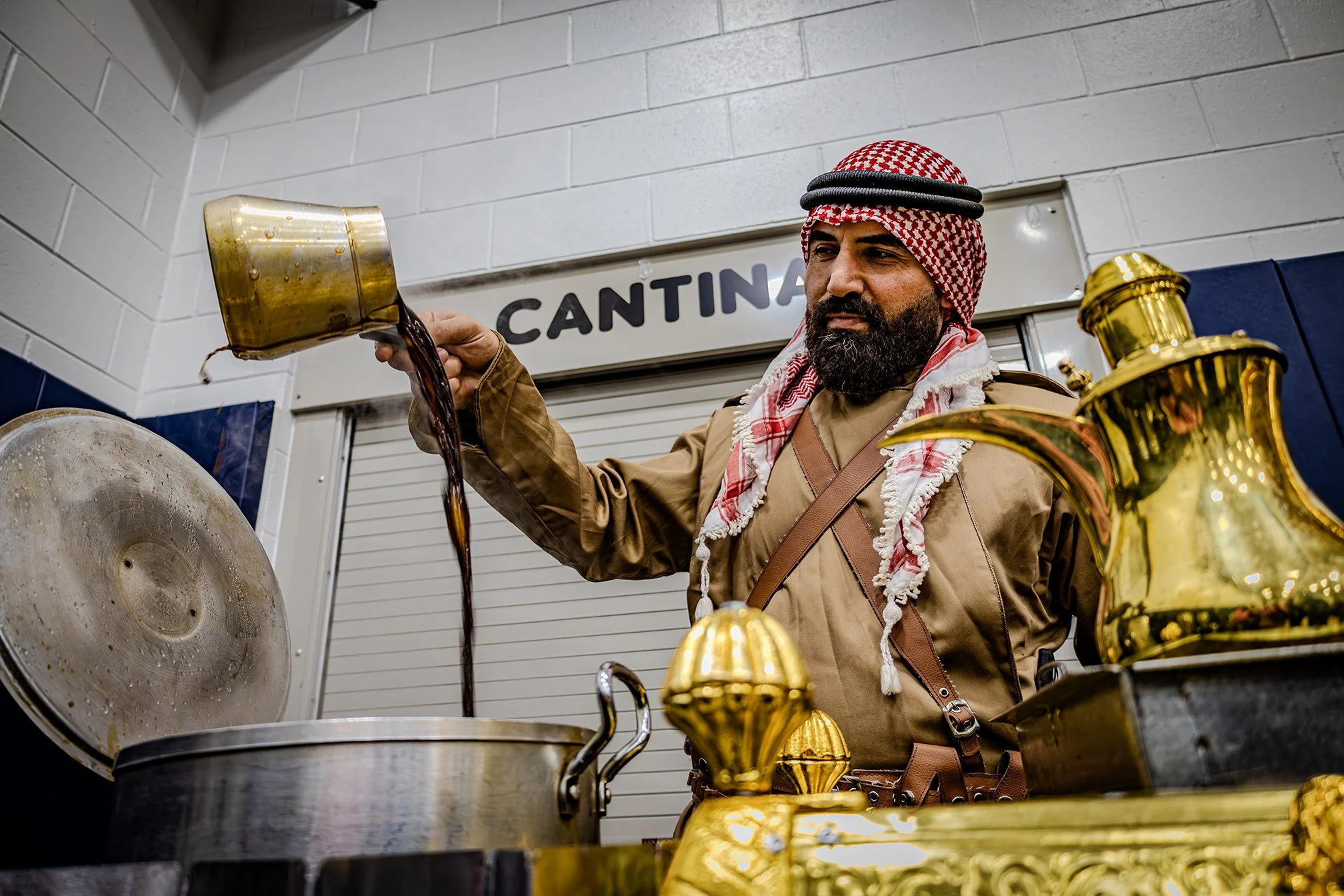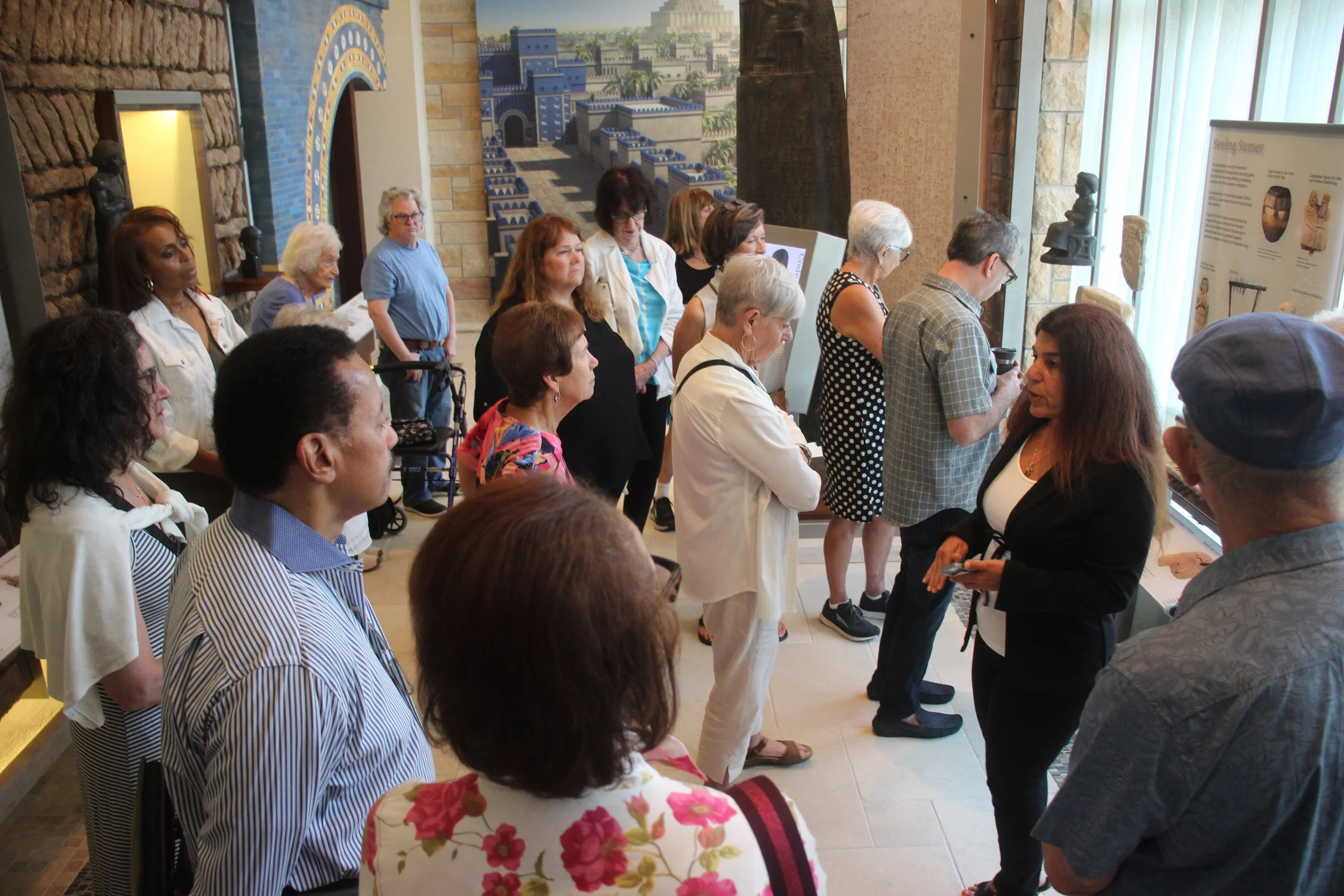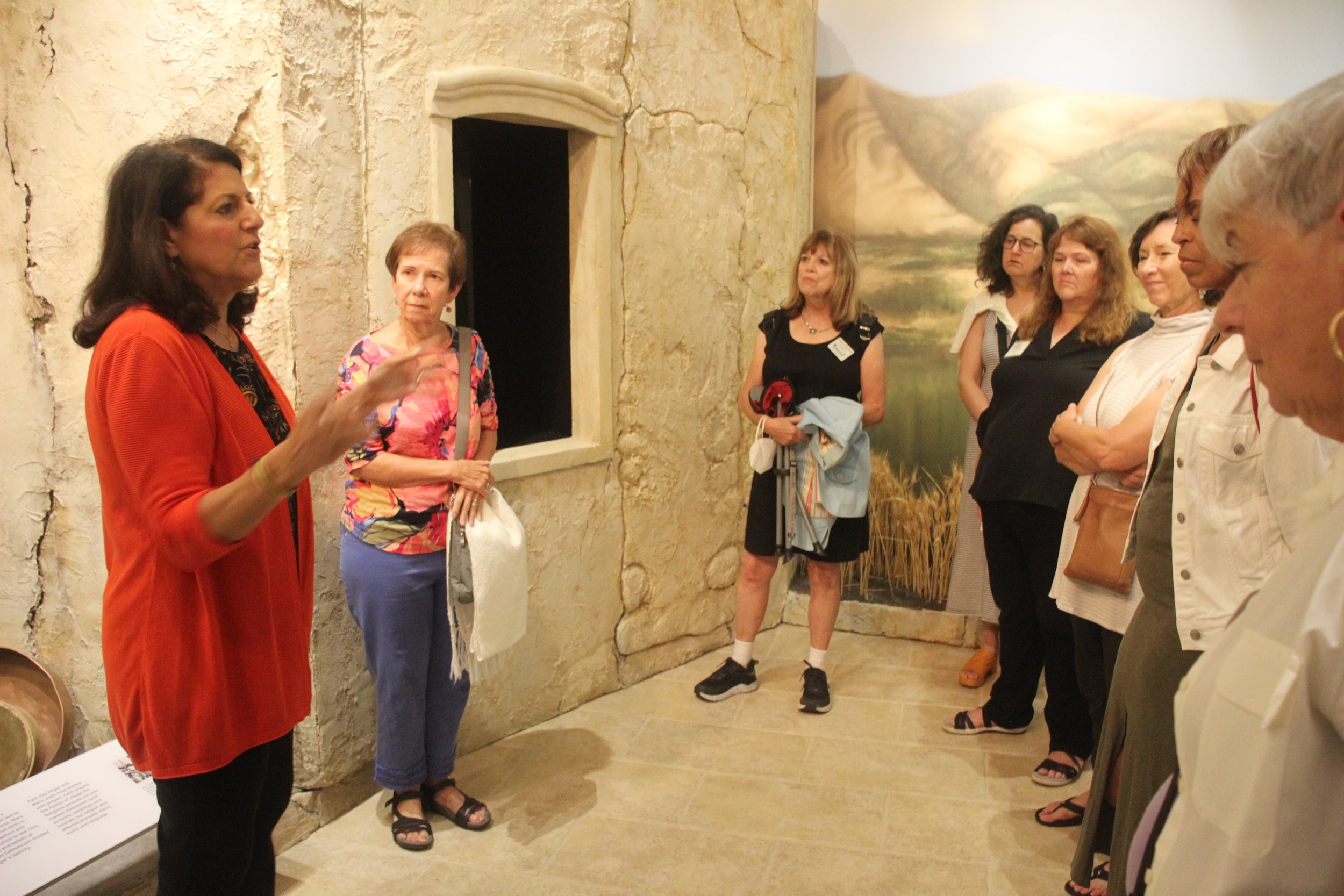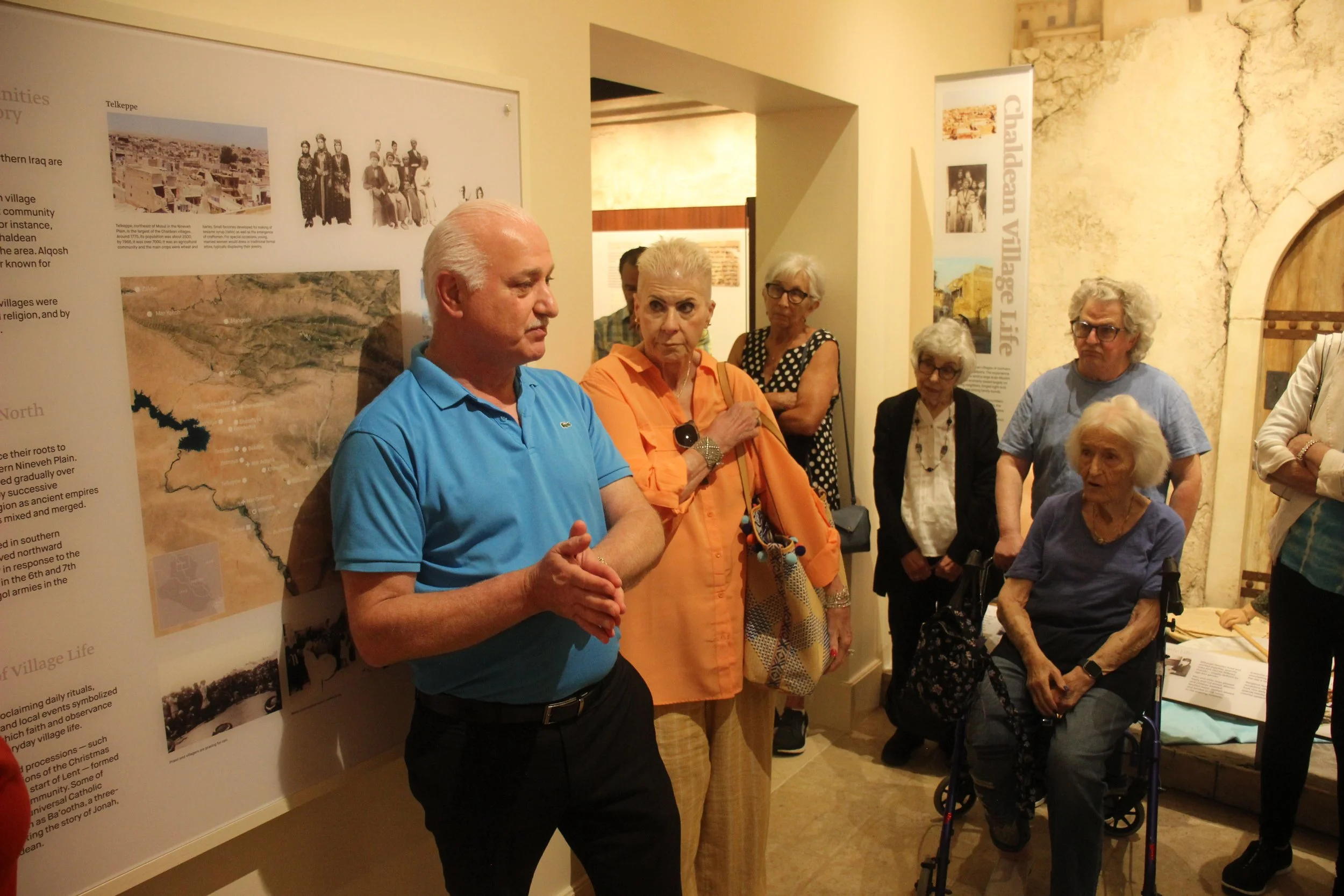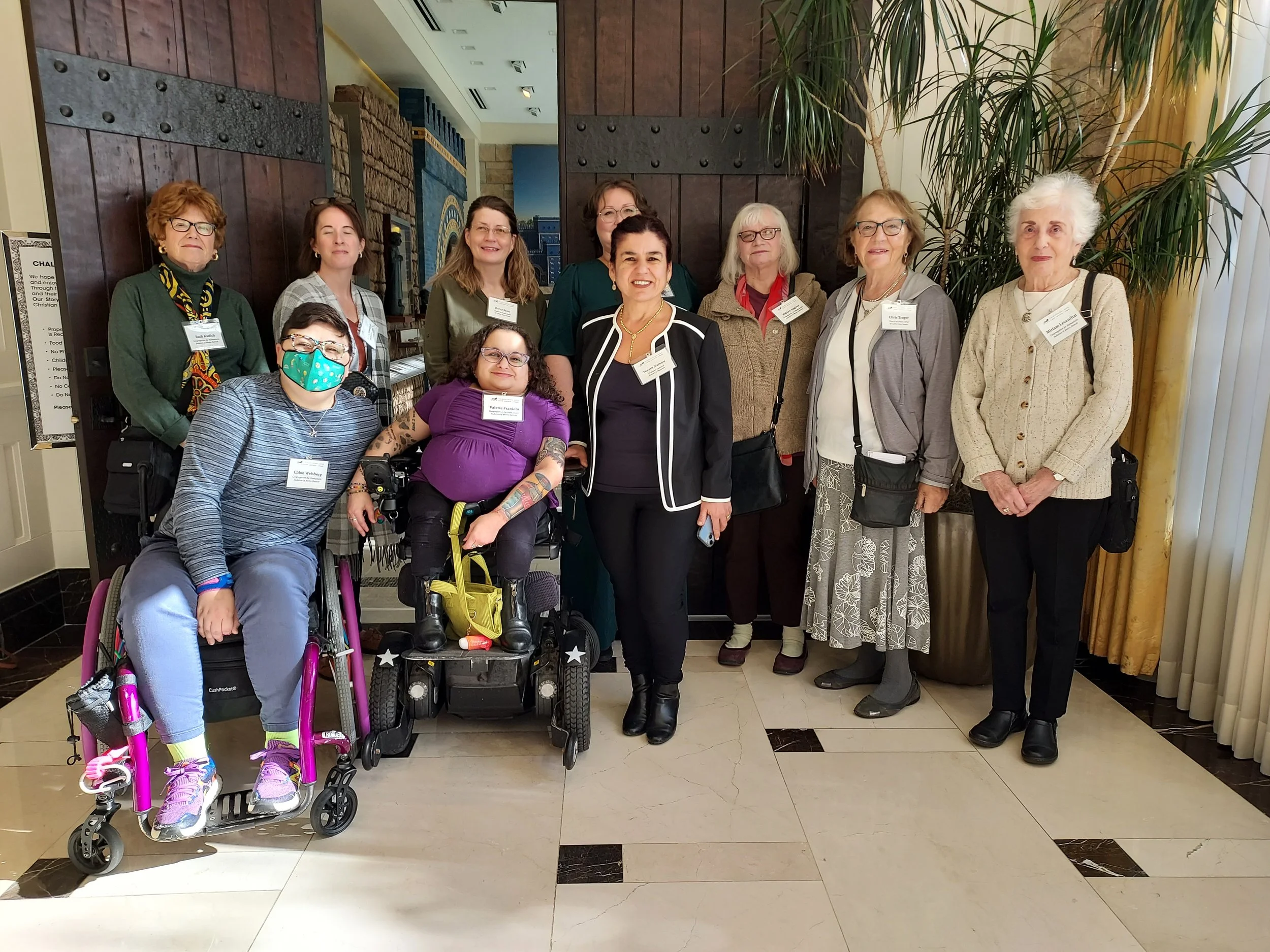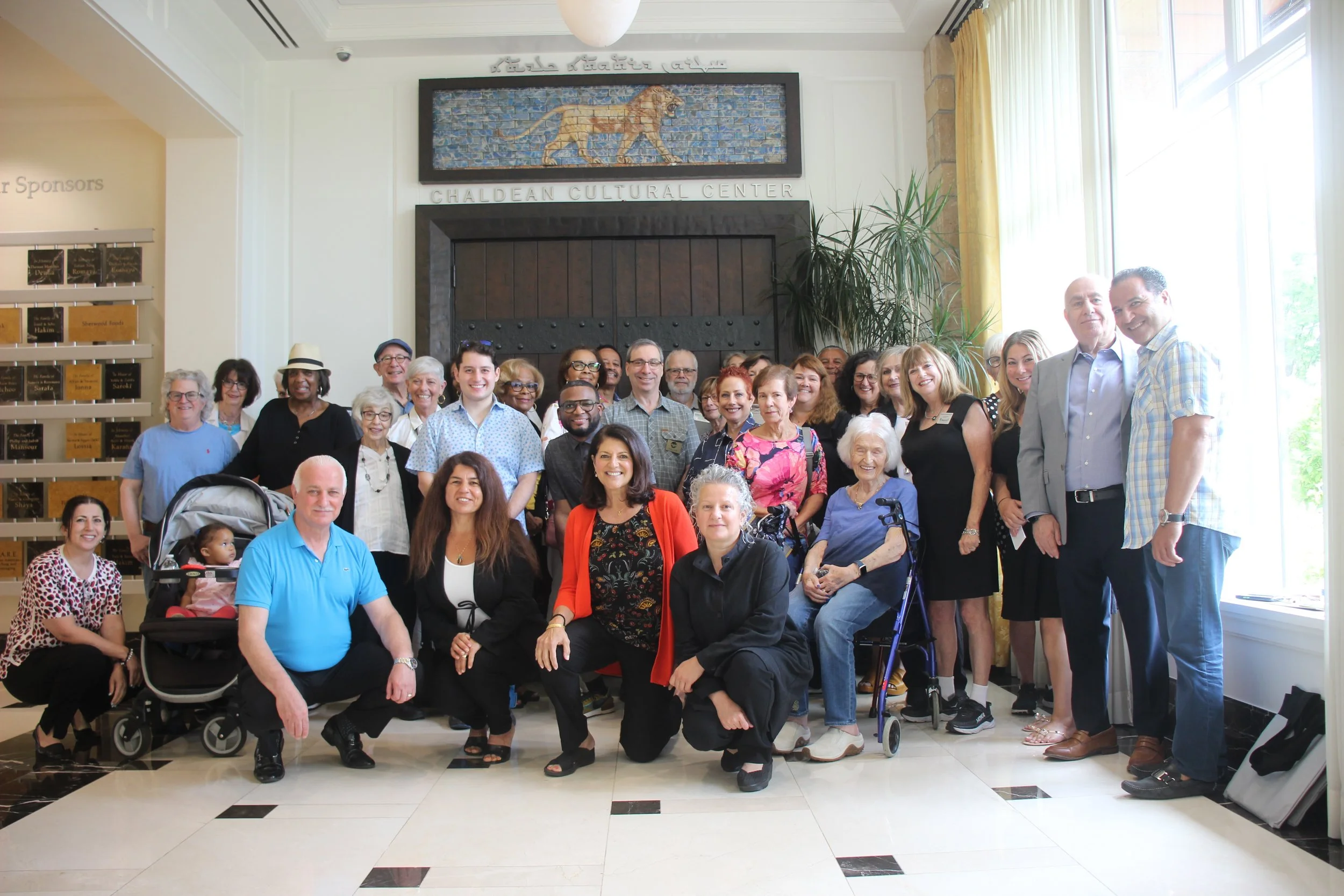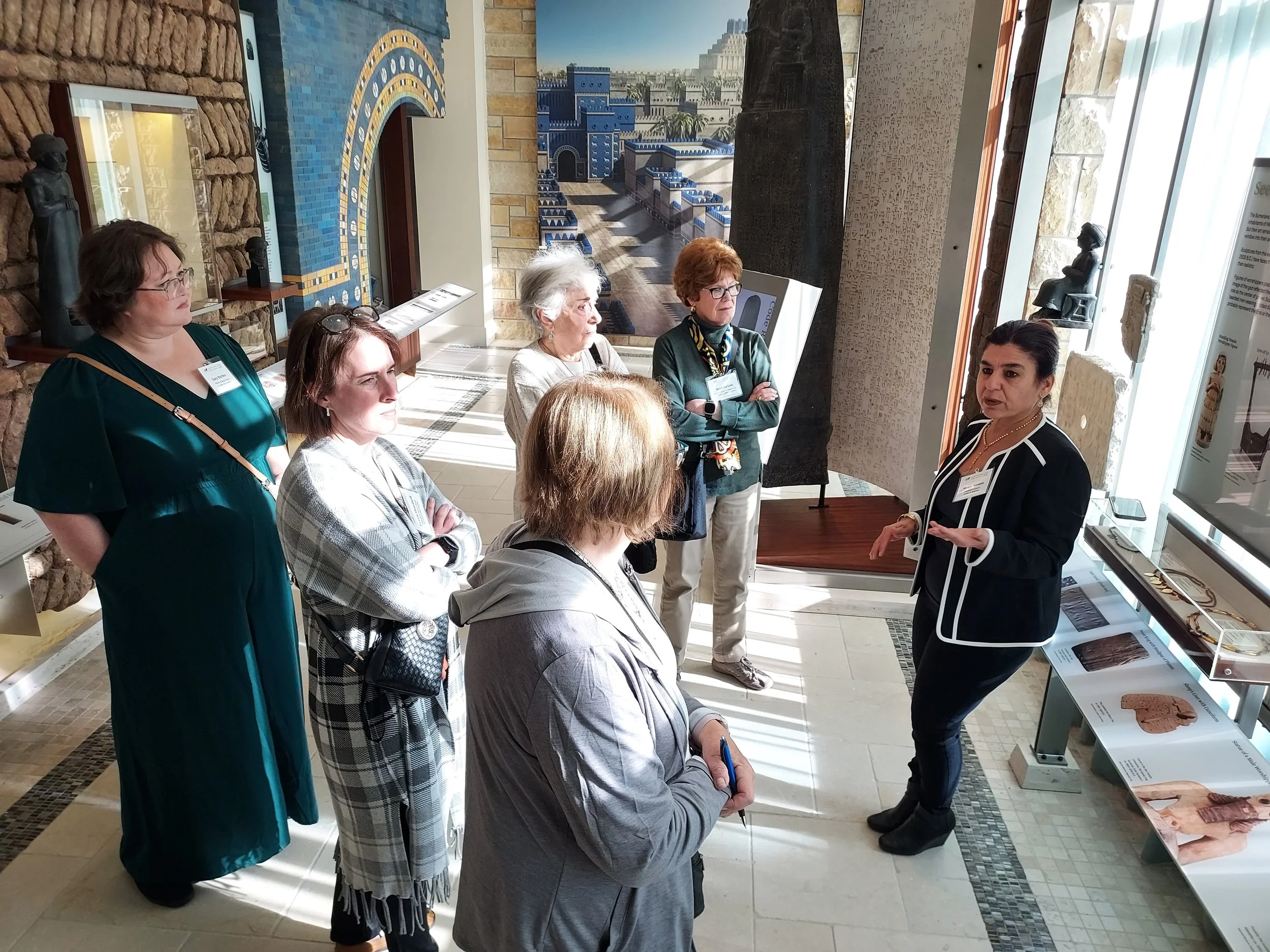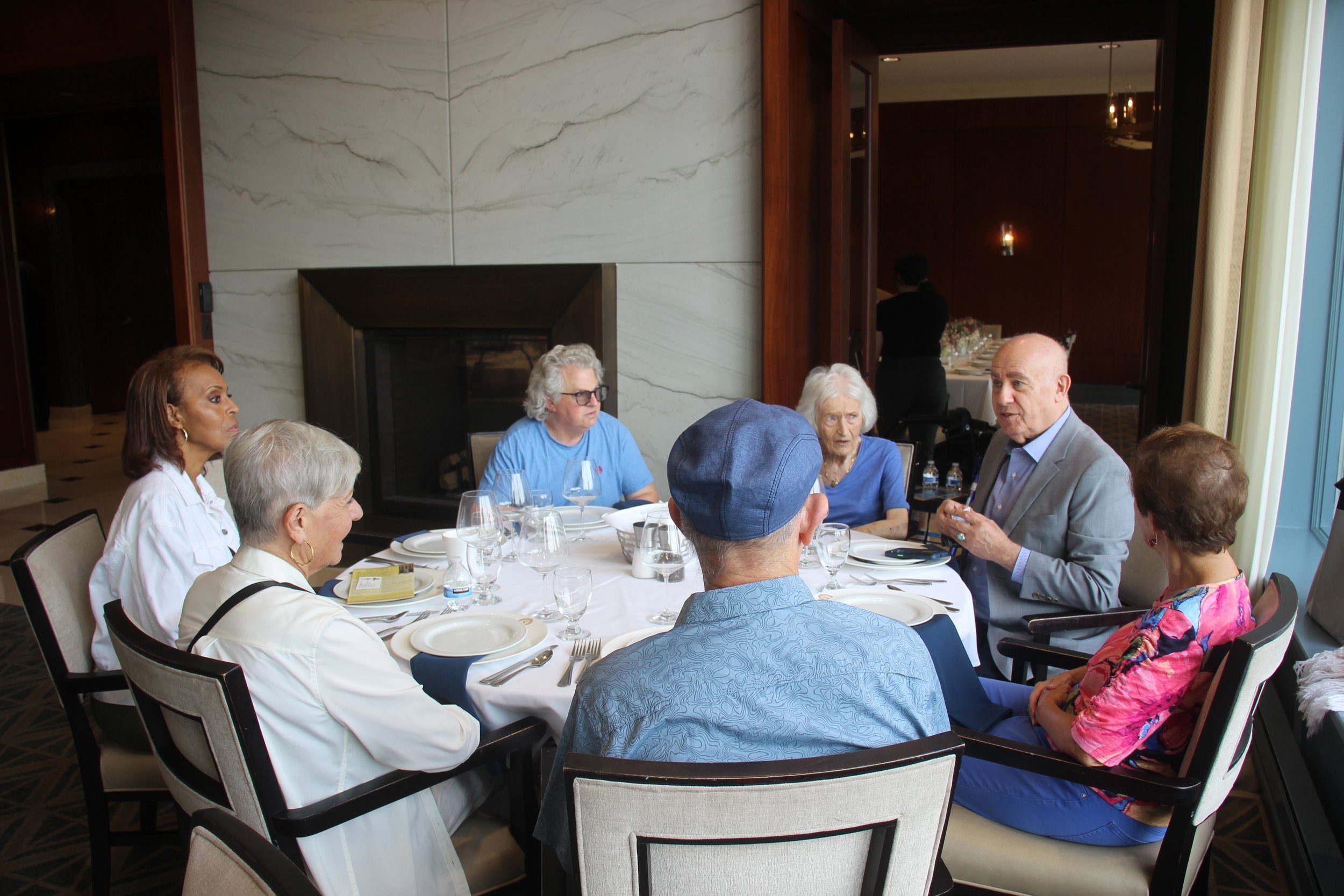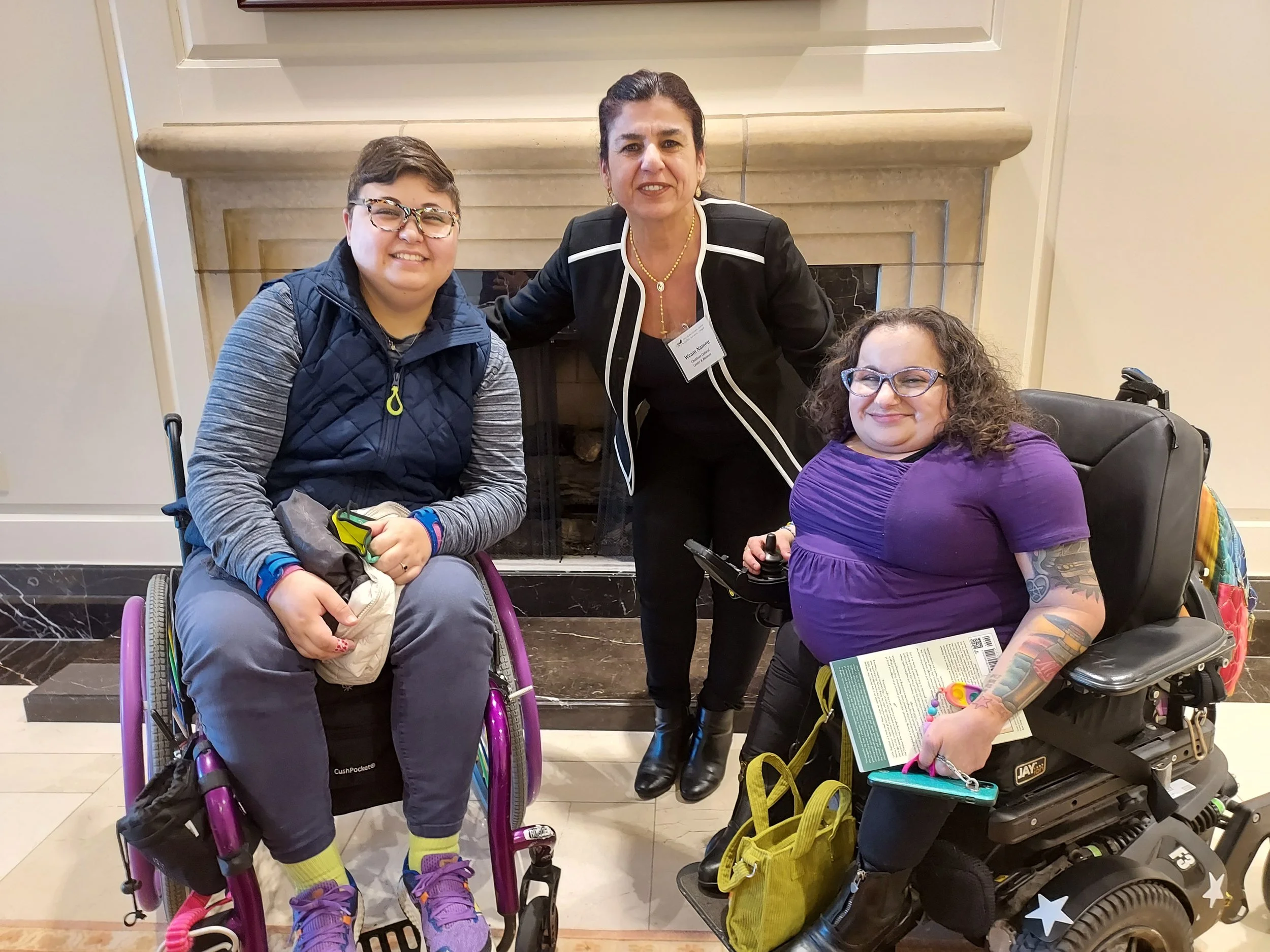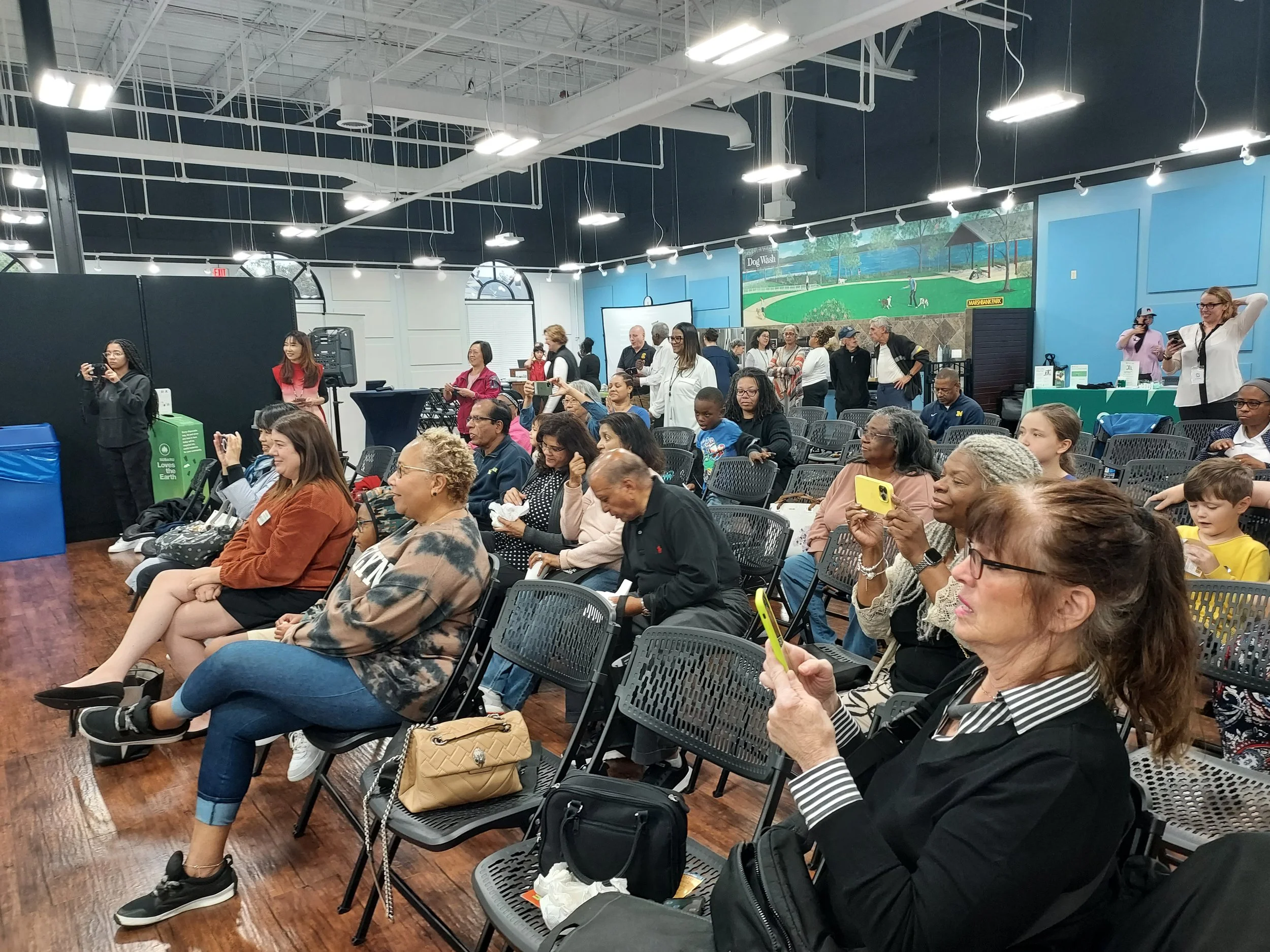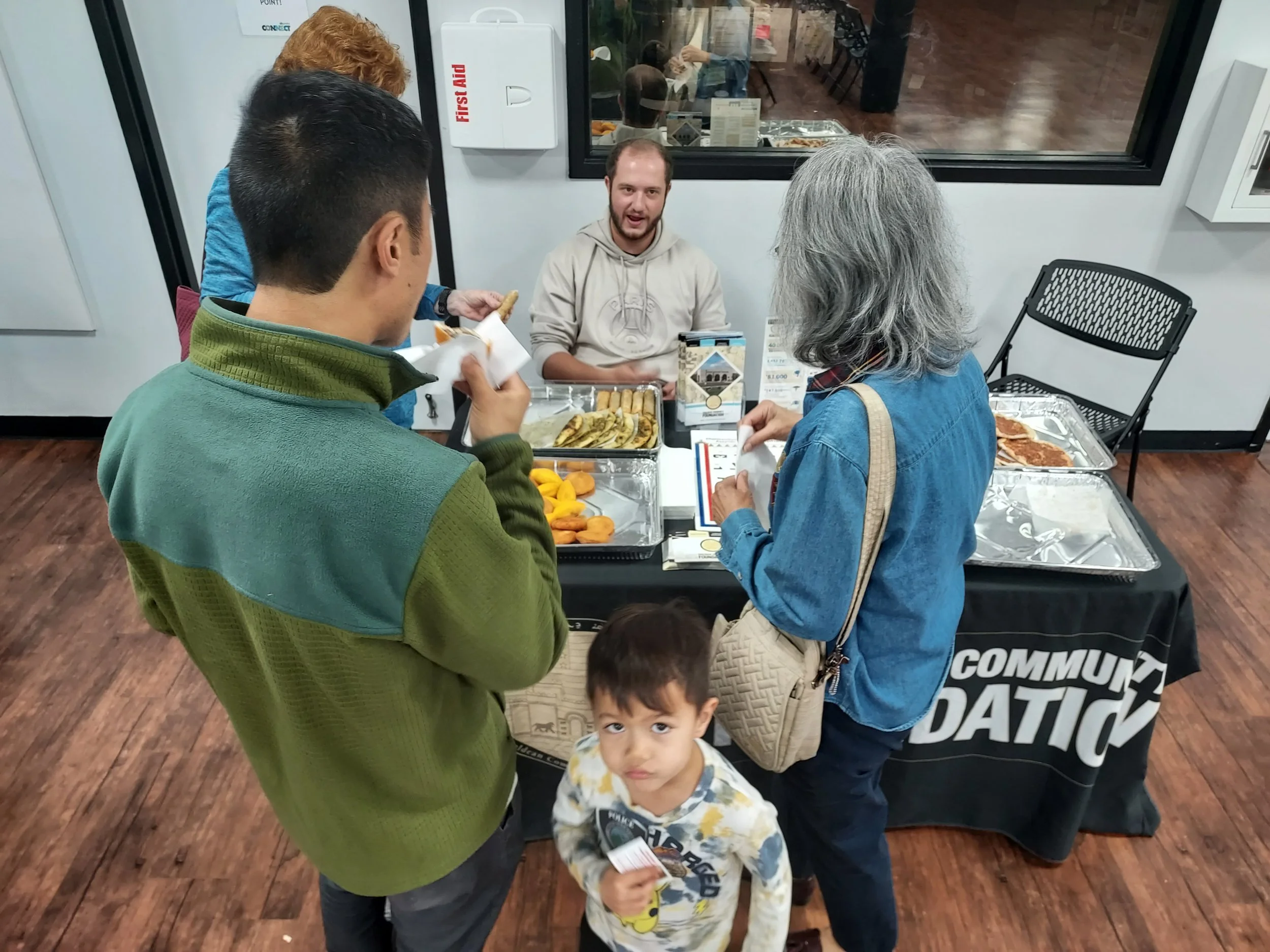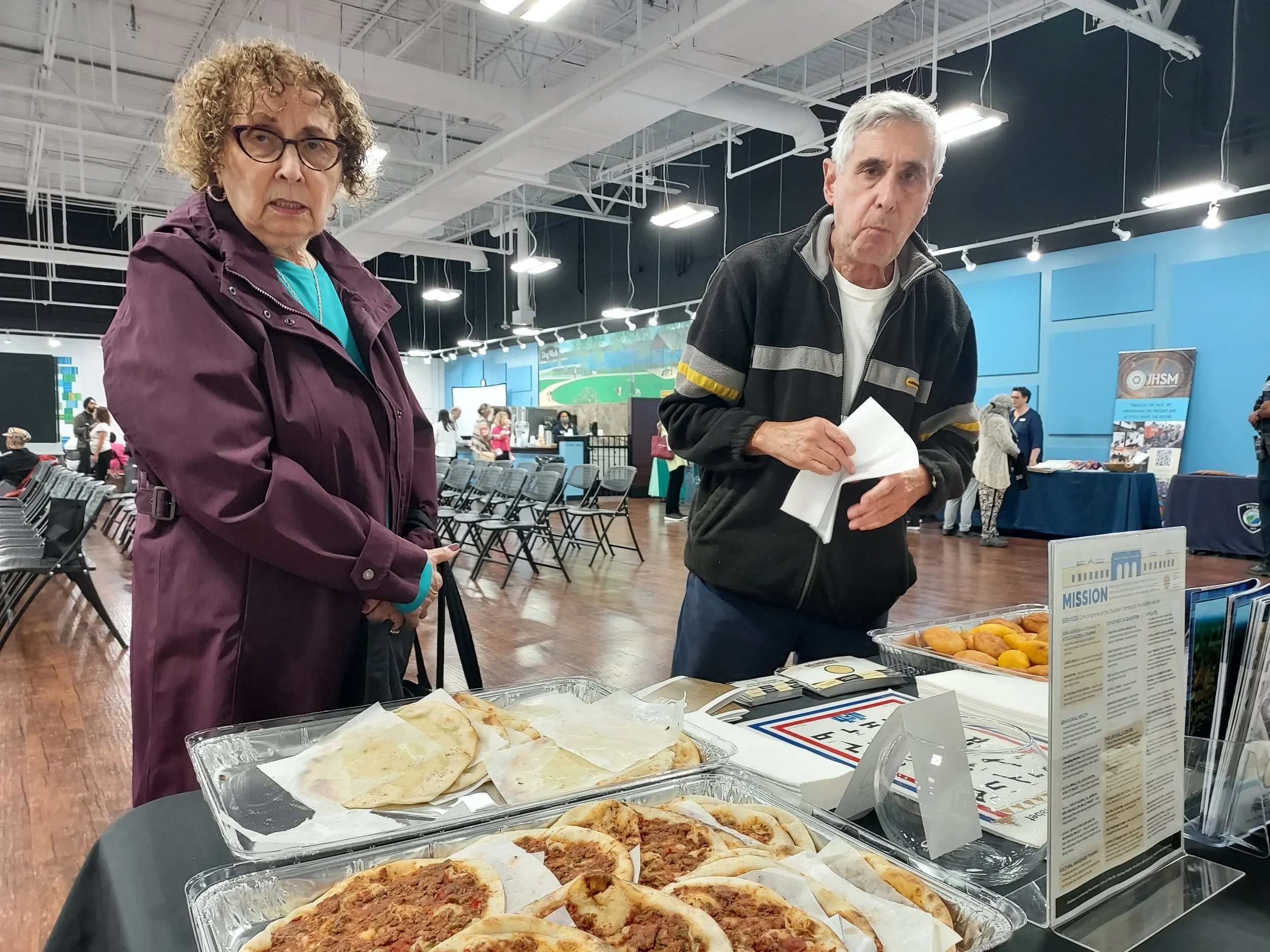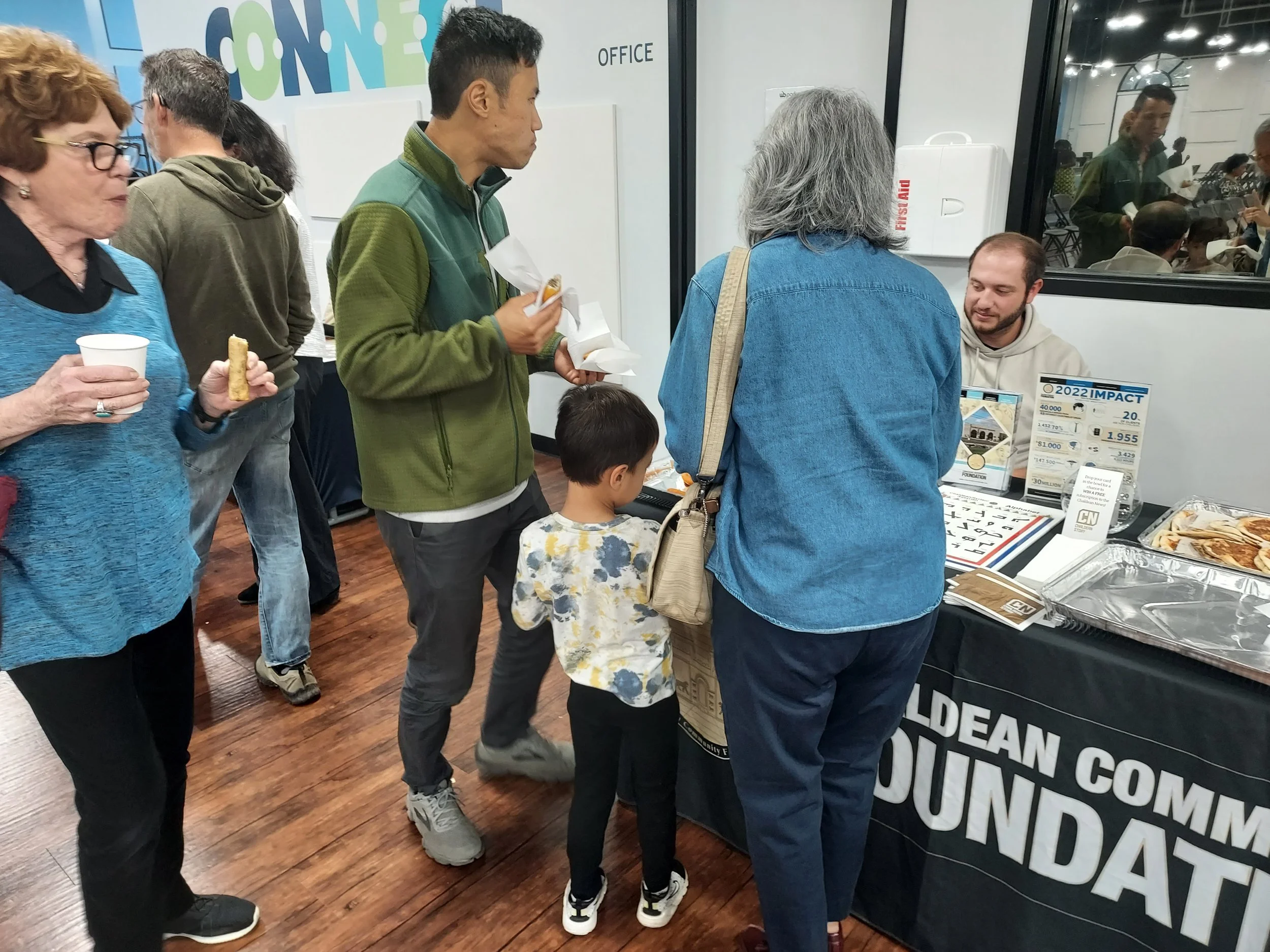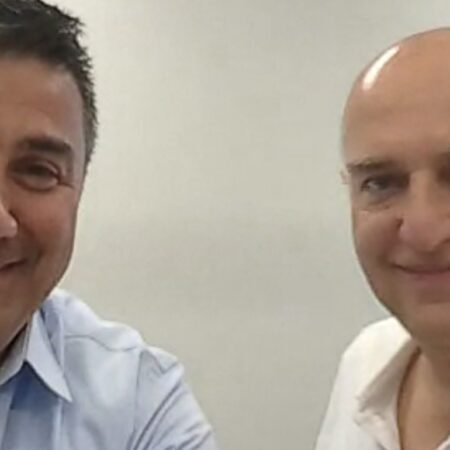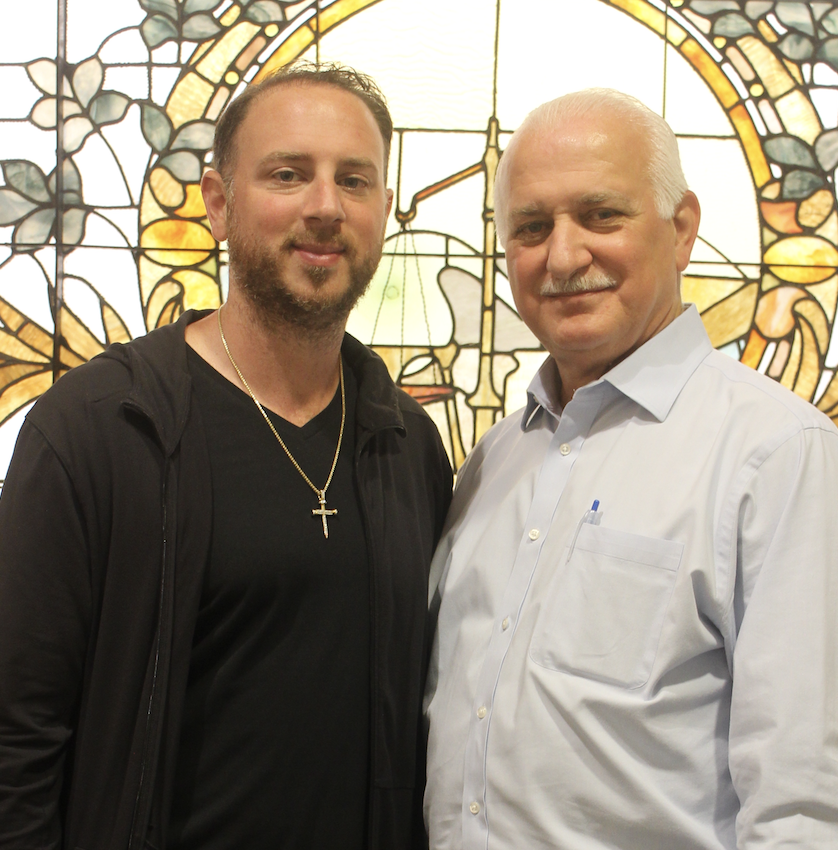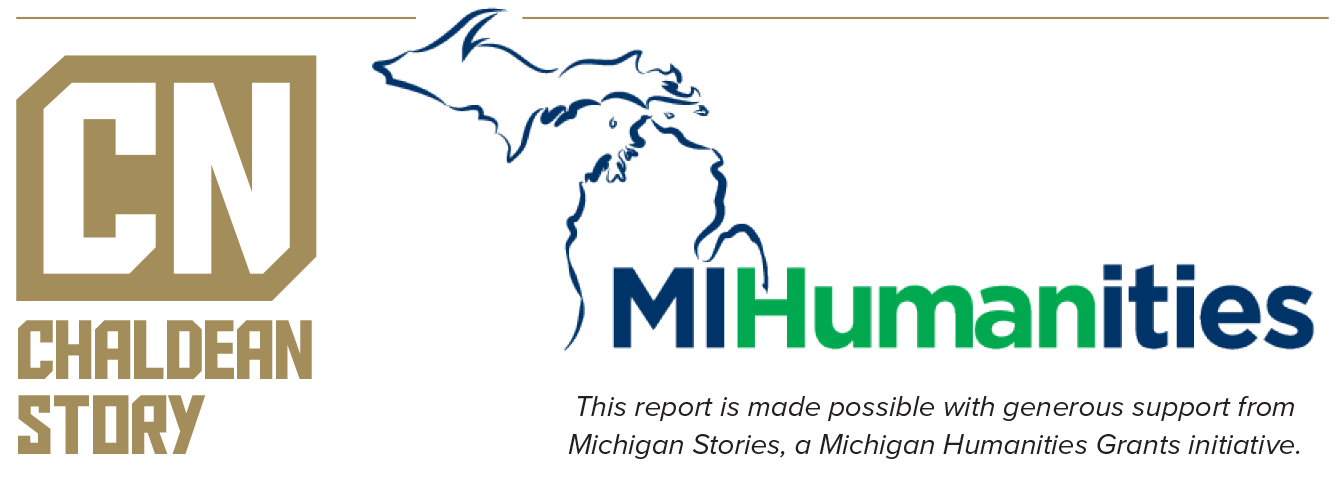
The Chaldean Story Initiative
Over the course of a twelve-month period during 2023-2024, the Chaldean News embarked on a special project, seeking to bring a deeper understanding of Chaldean culture and history. The stories were told through published articles, podcast interviews, video shorts and public forums and performances. Features included personal journeys from Iraq to Michigan, stories of business acumen and success, Chaldean spiritual life and the cultural influences contributed to Michigan.
A history of the Chaldeans —who they are and where they came from — was explored, along with questions such as, why Michigan became the destination for this indigenous population, the journey and challenges they faced along the way, and the many entrepreneurial contributions made to Michigan’s economy since this community has settled here.
This initiative was made possible with generous support from Michigan Stories, a Michigan Humanities Grants Initiative.
COMMEMORATIVE COLLECTION
This commemorative edition includes all of the features published with the Chaldean Story series, made possible with generous support from Michigan Stories, a Michigan Humanities Grants initiative.
FEATURES
2024
The CN’s Michigan Humanities Grant culminated in an 84-page commemorative issue of the Chaldean News. This special booklet includes all material gathered for the grant, including the history of the community both in Iraq and in the U.S., particularly in southeastern Michigan.
When Chaldeans first came to Detroit, they struggled to integrate into American society and learn the language. They had their own unique culture, one that was different from that of other Americans and most immigrants. At first, this was a point of pride for Chaldeans. Their faith, family values, tight-knit community, and work ethic ultimately led to success in a foreign land. Chaldeans raised their families in the same traditions that they came from and passed down their culture successfully.
The Chaldean News and Chaldean Community Foundation hosted a “Culture Night” to celebrate and showcase Chaldean culture. More than 200 people attended the event, many of whom were not Chaldean. The guests enjoyed traditional Chaldean foods like potato chop and geymar, among others. The event marked the end of a months-long grant series called the Chaldean Story. Last year, the Chaldean News received a grant from Michigan Humanities’ Great Michigan Stories, which is meant to highlight untold stories in Michigan.
In the vast landscape of America’s cultural mosaic, the Chaldean community stands out not only for its rich heritage but also for its remarkable closeness. Nestled within the broader spectrum of Iraqi Americans, which include Assyrians and Syriacs, Chaldean Americans have cultivated a distinct identity characterized by a deep sense of unity and familial ties.
Chaldean News staff Dr. Adhid Miri was invited to speak at a “Storytellers on Sunday” event held May 19 at Palmer Park Log Cabin. The cultural neighborhood event included a book swap and discussion (stories) with four guests, including Dr. Miri.
Dating back to ancient Mesopotamia, the Epic of Gilgamesh stands as one of the oldest known works of literature in human history. This epic poem, written on clay tablets in cuneiform script, tells the story of Gilgamesh, the legendary half-god king of Uruk, and his quest for immortality. Through its portrayal of heroic deeds, friendship, and the inevitability of mortality, the Epic of Gilgamesh reflects the concerns and values of society in ancient Mesopotamia.
At the young age of four, Omar Jarbo began playing the zurna, following in his father’s footsteps. It’s a woodwind instrument with a double reed, just like an oboe. Different versions of it are widely played in the Middle East, Central Asia, and the Balkans. When Jarbo was only eleven years old, he entertained audiences in Tel Keppe during events, even at weddings that went on for two to three days. “We would travel from store to store, home to home, playing music,” he explained with emotion. “Life there was absolutely beautiful.”
Nestled along the shores of a great river, Detroit’s story is one of triumph over adversity. From its humble beginnings as a French fur-trading post to its rise as the automotive capital of the world, Detroit has weathered economic downturn, social upheaval, and urban decay. Yet, amidst the challenges, one constant has remained – the power of faith to inspire, unite, and uplift.
“Geography informs your fate,” says Dr. Adhid Miri. What he means by that is our environment has an immense influence on our chosen trade or livelihood. The Silk Road—interwoven passages, caravan routes, and byways that stretched from China to the eastern Mediterranean—connected with other important trade routes in ancient Mesopotamia, giving rise to a culture adept at trade.
Back in 1937, a group of Chaldean Iraqi Christians traveled from Telkaif to Mosul, then to Adana to board a cargo ship bound for America. However, the United States was not their final destination. Upon reaching Ellis Island, New York City’s famous point of entry, they would board another ship, this one bound for Veracruz, which was then the main port of entry into Mexico.
April is National Cannabis Awareness Month, so we wanted to take the opportunity to give you an update on the industry and on the status of the opposition to legalized marijuana. The legal industry is still young; we know that many Chaldeans have gotten in on the ground floor, capitalizing on their shrewd business skills. But others are not happy with the new legal status.
Even before the 2020 election that featured a national explosion of approval for ballot proposals legalizing marijuana production, processing and sales, the industry had taken off, with Michigan among the most lucrative states for cannabis crop sales. However, the lure of marijuana money comes with expensive federal tax headaches, restrictions on trade across state lines, and a depressed market overcrowded with licensees.
In the tapestry of history, the contributions of remarkable women often remain woven in the shadows, their stories hidden beneath layers of time, patterns, and societal norms. Yet, within the rich and vibrant cultural heritage of the Chaldean community, a garment of strength, resilience, and empowerment emerges; one adorned with the narratives of extraordinary women who have defied expectations and altered the weave.
Part III The Chaldeans’ journey to Detroit is a story constantly being rewritten as the community grows and evolves. It would be relatively simple to characterize Chaldeans in the early 1900s; their differences from other immigrants left them with few options besides the assembly line, menial labor, or starting their own farmers market stalls and eventually small storefronts.
Part II Ancient Mesopotamia was home to many great civilizations over different time periods. Because of the people and their inventions, the area is famous for many things, even as history is taught today, and is credited with the birth of society and cities. Writing, agriculture, laws, math, astronomy, city-states, architecture, and many more aspects of modern-day society that we take for granted originated in this area and within these communities.
To commemorate the 20th anniversary of publishing the Chaldean News, we take this opportunity to look back and honor the first Chaldean newspapers published in the US. We remember a host of Chaldean Iraqi immigrants who were journalists, writers, poets, and media entrepreneurs, and we celebrate their accomplishments here in America.
The traditions, values, interpretations, and actions of Christians change drastically throughout history. As Chaldeans were likely among the religion’s first converts, our community has followed those changes and is still experiencing them today.
2023
Part I Few members of the Chaldean community in Detroit still survive and remember what the village was like in the early 1900s, when our pioneers made the brave and challenging journey to America. What drove them to accomplish such a feat? To understand the enormity of such a journey, it’s necessary to recall the reality of village life and its simplicity.
The culinary traditions of the Chaldean community are as rich and diverse as our ancient history. Originating from the cradle of civilization, Chaldean cuisine boasts a plethora of flavors that narrate our cultural heritage. As the Chaldeans found a new home in Detroit, Michigan, we brought along our cherished recipes, crafting a unique food narrative that melds ancient traditions with the modern-day food landscape of the Motor City.
Detroit is home to a unique Middle Eastern community who call themselves Chaldeans. This article attempts to illuminate the Chaldean heritage and religion, tracing its journey from the grand civilizations of ancient Mesopotamia to the culturally rich villages of Northern Iraq. We will explore the profound legacy of the Chaldeans and examine the integral role of the Church of the East in their identity.
In the rich tapestry of American diversity, the Chaldean community stands out as a vibrant example of immigrants who have not only embraced the American dream but have also contributed significantly to the country’s defense. With a deep sense of patriotism and a commitment to safeguarding the freedoms they’ve come to know, Chaldean Americans in every generation have a proud tradition of serving in the United States military. Hundreds of men and women have joined the effort to protect and serve.
The Aramaic language, known today in its many names and dialects like Chaldean, Assyrian, Syriac, or Sureth, was once the lingua franca of vast swathes of the Middle East and served as the voice of culture and thought for many people in the region. This language, although it experienced a significant decline since that time, has become a defining feature of the Chaldean identity, especially as waves of Chaldeans migrated to new lands in search of opportunity and safety.
Chaldeans have lived and learned in Michigan for over 100 years. During that time, they have brought with them and transmitted their culture and traditions, including how knowledge is passed down and inherited. The defining characteristics of Chaldeans as it relates to education are family and community.
The Chaldean News sponsored a trip to Kalamazoo last month for a father-son duo, Nick and Randy Najjar, to share their story with a program called StoryCorps, which aims to “illuminate the humanity and possibility in us all – one story at a time.”
Born in Alqosh, Iraq, Raad Hakeem, 32, has been playing the tamboura since the age of eleven. Known in Turkish as saz, the tamboura is a musical stringed instrument with a long neck and round body. It belongs to the lute family and is known for its rich, resonant sound. It is commonly used in Indian classical music, although it has found its way into various genres of world music and fusion styles due to its unique tone and versatile nature.
A group from the Jewish community and West Bloomfield leadership visited the Chaldean Cultural Center inside Shenandoah Country Club on Saturday, August 5. This was the first of a series of events for the year-long Chaldean Story project, made possible with support from Michigan Humanities Grants.
Among the many inventions credited to Mesopotamian cultures, most notably the Sumerians, are the first written language, first code of law, first urbanization in the form of city-states, first astronomical calendar, and first numerical system based on 60 (seconds in a minute, minutes in an hour). They also invented the idea of a 24-hour day and the concept of zero!
MIGRATION TO MICHIGAN
PODCASTS
Weam Namou is an author, filmmaker and a featured presenter at Beth Nahrain: The Second Annual Writers of Mesopotamia Conference. Ms. Namou discusses her writing process, finding inspiration in everyday moments, and how support for others helps with her own writing.
Habib Hannona is an author, historian and one of the featured presenters at Beth Nahrain: The Second Annual Writers of Mesopotamia Conference. Mr. Hannona discusses how Chaldeans and Assyrians came to be intertwined through historical events.
Roy Gessford is an author, publisher and one of the featured presenters at Beth Nahrain: The Second Annual Writers of Mesopotamia Conference. Mr. Gessford discusses the need to develop writers within the Aramaic-speaking community, as well as his path to the study of Aramaic.
Dr. Adhid Miri is an author, historian and one of the featured presenters at Beth Nahrain: The Second Annual Writers of Mesopotamia Conference. Dr. Miri discusses the writing experience as well as the importance of education for the Chaldean identity (The Brand).
Ron Acho's career as legal counsel to his clients has spanned more than fifty years. The leading partner of Cummings, McClorey, Davis and Acho, he recently sat down with the Chaldean News to discuss his illustrious career and to share his thoughts about the Chaldean community.
EVENTS
a night of culture – may 2024
FOLLOW THE SILK ROAD: FROM MESOPOTAMIA TO MICHIGAN – February 2024

Distinguished panelists Jacob Bacall, Karam Bahnam, Mike Denha and Jeff Denha join the Chaldean News for a public forum. Together they trace the history of the Chaldean entrepreneurial spirit, from ancient Mesopotamia to modern-day accomplishments in Michigan.
Bet Najrain Art Show – November 2023

Christina Salem Interviews Fr. Patrick Setto about his work as an artist and why he's attending the Bet Nahrain Art Show. The Show benefited the victims of the tragic wedding fire in Bakhdeda.

Cal Abbo Interviews Shamash about his work as an artist and why he's attending the Bet Nahrain Art Show. The Show benefited the victims of the tragic wedding fire in Bakhdeda.

Cal Abbo Interviews Chris and Ranna Salem about their work with Nineveh Rising and why they decided to put on the Bet Nahrain Art Show. The Show benefited the victims of the tragic wedding fire in Bakhdeda.

Christina Salem Interviews Sabah Wazi about his work as an artist and why he's attending the Bet Nahrain Art Show.

Alan Mansour joins Chaldean News TV behind the scenes at the Bet Nahrain Art Show. Music courtesy of Sound Gallery by Dmitry Taras. https://pixabay.com/users/soundgalleryby-21339672/

Cal Abbo Interviews Mahir Awrahem about his work as an artist and why he's attending the Bet Nahrain Art Show. The Show benefited the victims of the tragic wedding fire in Bakhdeda.

Christina Salem Interviews Cassidy Azzow about her work as an artist and why she's attending the Bet Nahrain Art Show. The Show benefited the victims of the tragic wedding fire in Bakhdeda.

Christina Salem Interviews Reni Stephan about his work as an artist and why he's attending the Bet Nahrain Art Show. The Show benefited the victims of the tragic wedding fire in Bakhdeda.

Christina Salem Interviews Mark Georgies about his work as an artist and why he's attending the Bet Nahrain Art Show. The Show benefited the victims of the tragic wedding fire in Bakhdeda.

